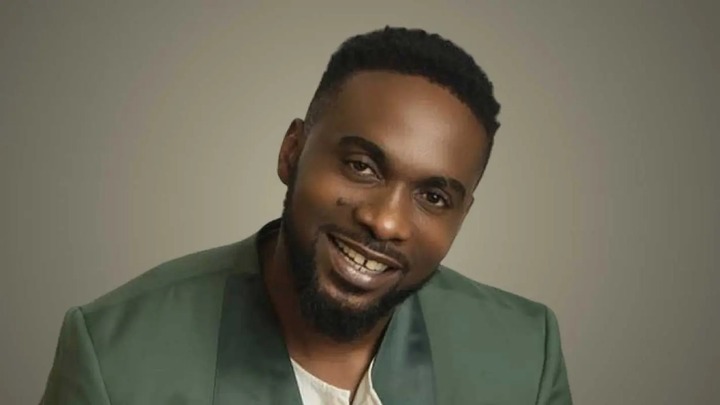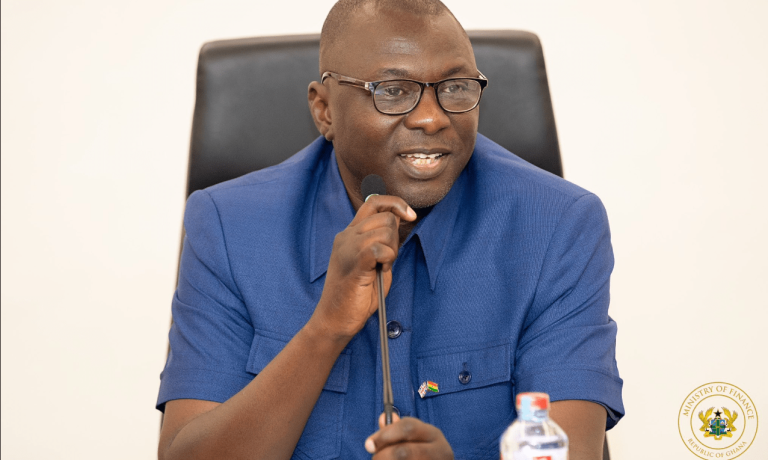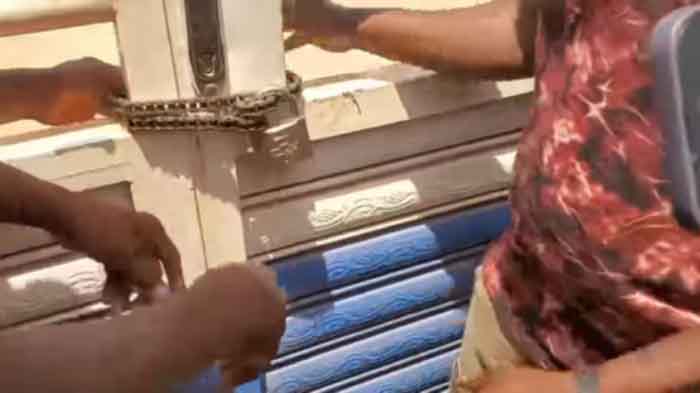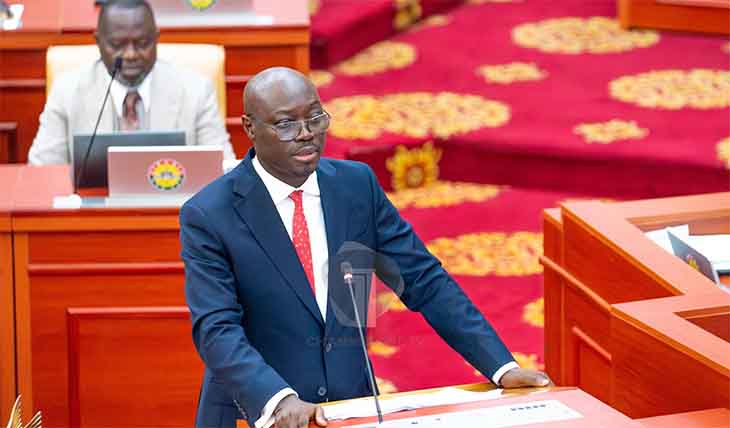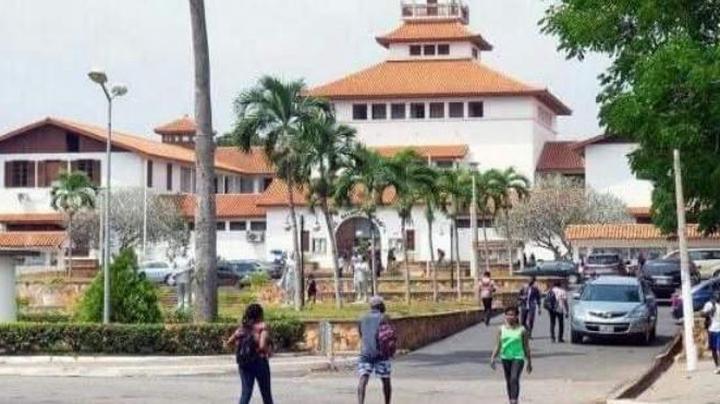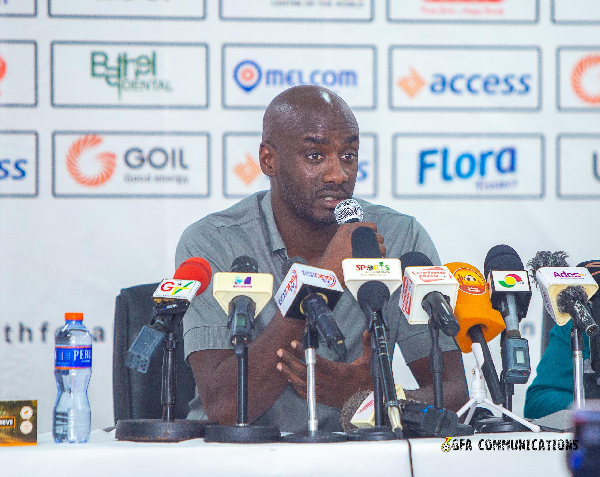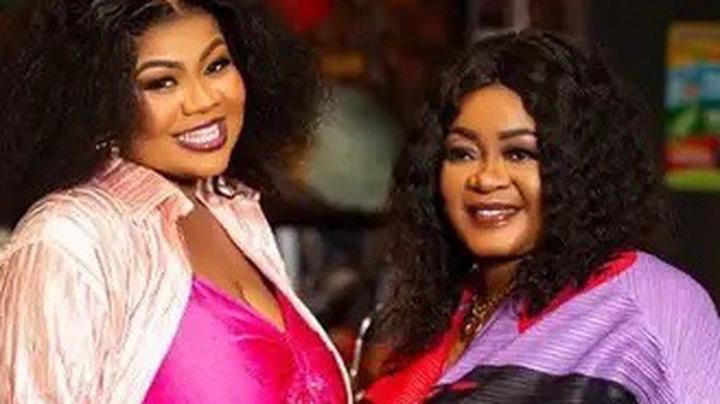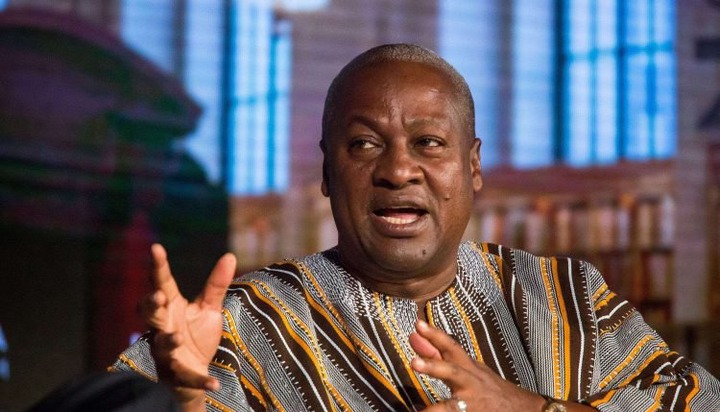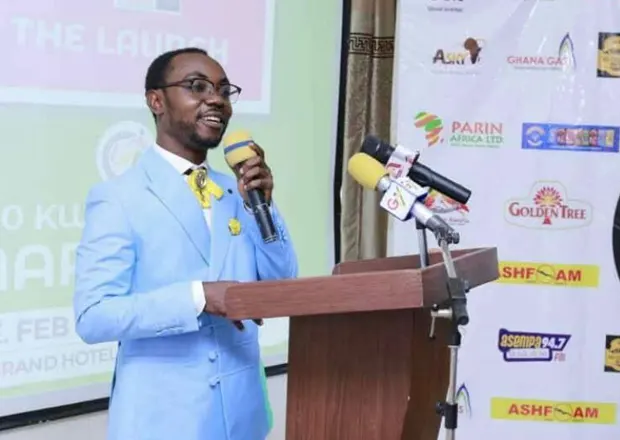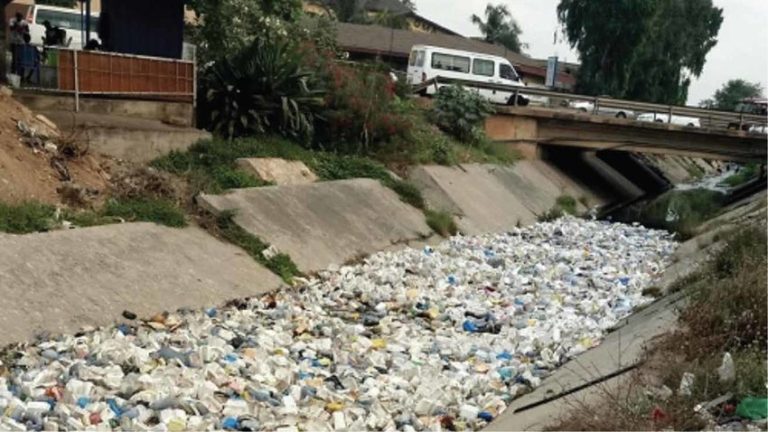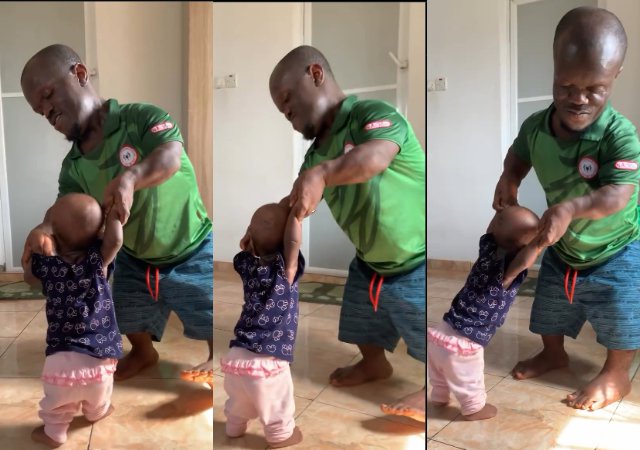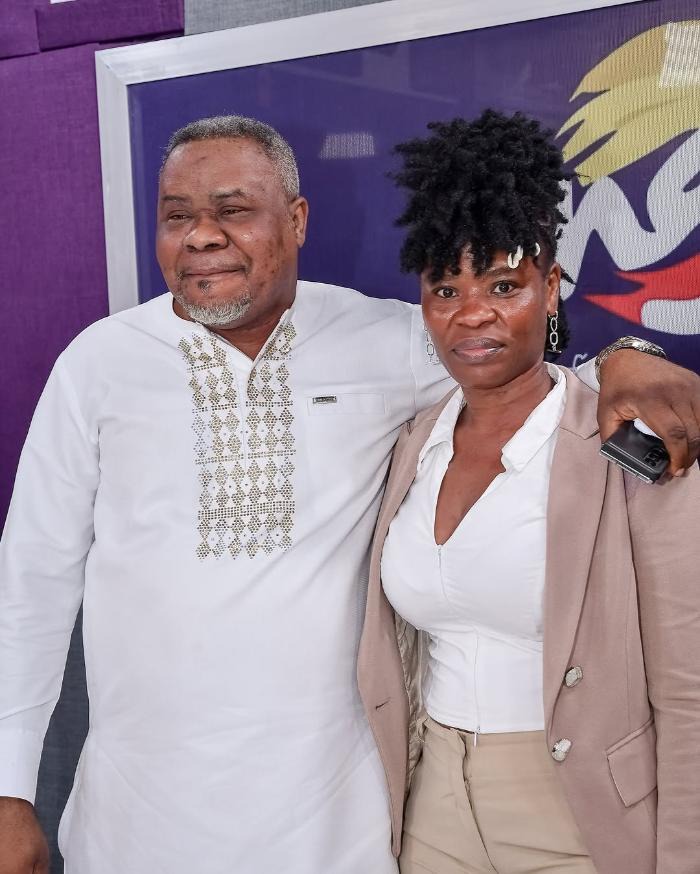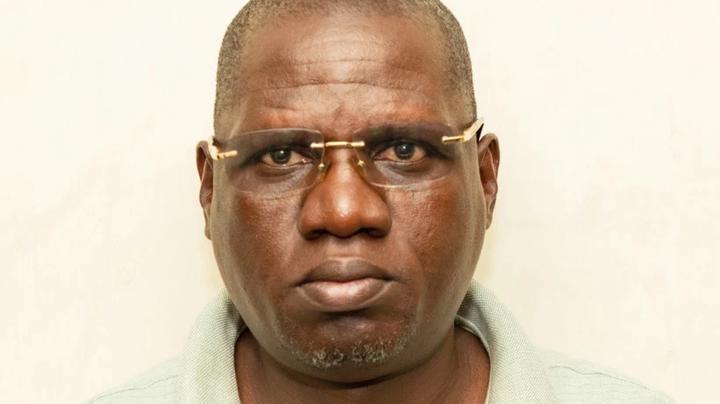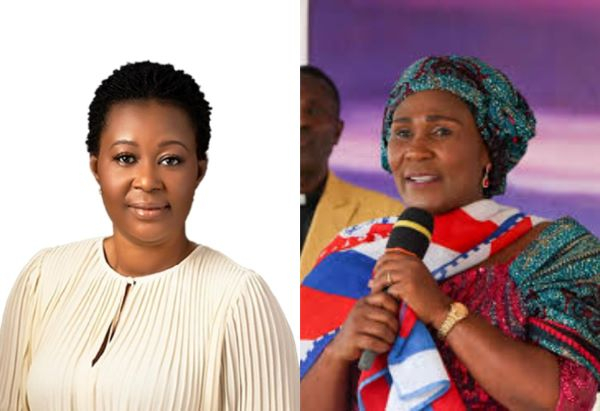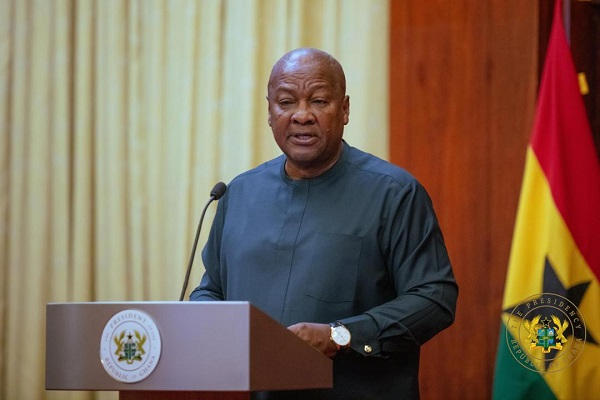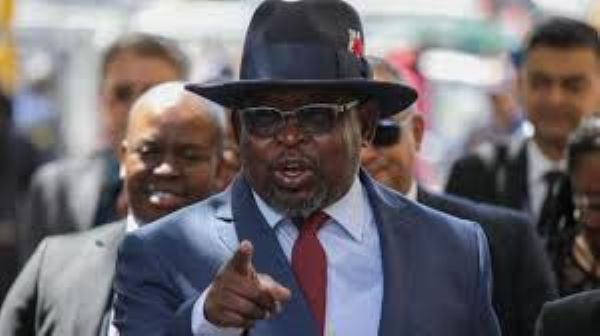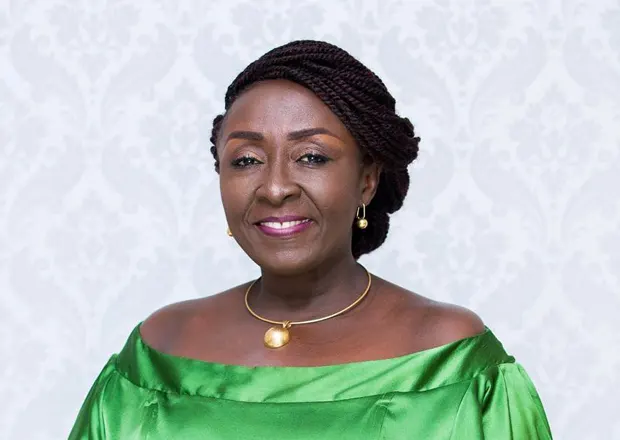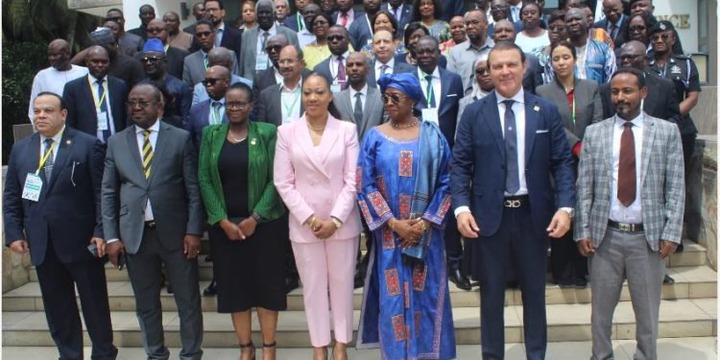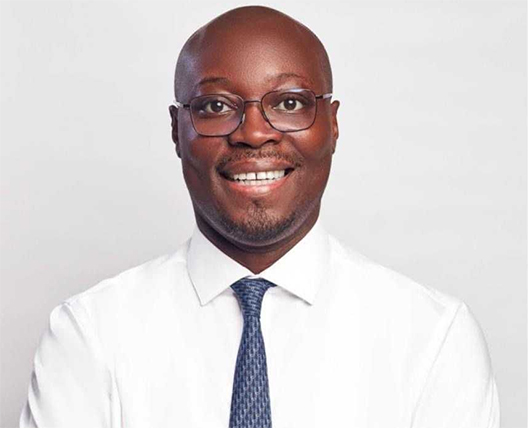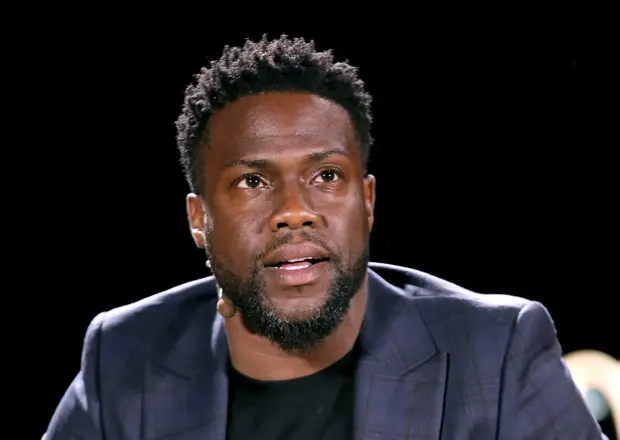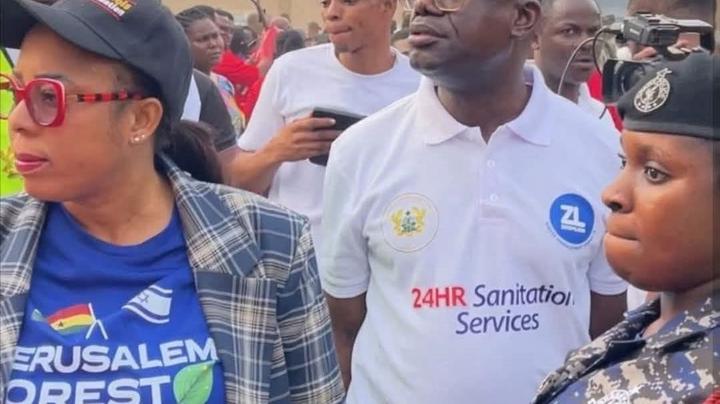obour
Managing Director of Ghana Post, Bice Osei Kuffour (Obour), has officially resigned as from his post after being in office for two years.
Obour, who took on the role as Ghana Post Managing Director on January 4, 2022, described his tenure as a privilege, emphasizing the significant progress made under his leadership.
He highlighted key achievements, including advancements in digitalization, operational efficiency, brand visibility, and financial sustainability—efforts aimed at transforming Ghana Post
Obour resigns from Ghana Post
Elegant , effortless and Comfortable long dress styles for Ladies
Long dresses are essential pieces in many women’s wardrobes, providing a blend of comfort and style. They can easily be dressed up or down, making them highly adaptable for various occasions. Whether you’re going to a formal gathering or just want something stylish and easy for everyday wear, a comfy long dress is an excellent option. Here are some fashionable and cozy long dress choices for women that merge elegance with comfort.
The maxi dress stands out as a symbol of both comfort and style. Its long, flowing design allows for easy movement while maintaining a sophisticated, streamlined appearance. Maxi dresses are available in a range of fabrics, from light cotton perfect for warm summer days to thicker materials like jersey or knit for cooler weather. Their versatility makes them ideal for numerous occasions, such as beach trips, picnics, or casual dinners. You can easily switch up the look by pairing it with sandals or heels.
A wrap dress is an excellent choice for those seeking a flattering and comfortable long dress. The wrap style cinches at the waist, providing structure while allowing plenty of room in the skirt. Its adjustable fit makes it suitable for various body types, combining practicality with style. Opt for a wrap dress in a soft, stretchy fabric like cotton or jersey for maximum comfort. This design works well for both casual and more formal events when accessorized appropriately.
The shirt dress merges the simplicity of a button-down shirt with the elegance of a long dress, resulting in a relaxed yet stylish appearance. Typically crafted from soft cotton or linen, it offers breathability and comfort for all-day wear. You can elevate a shirt dress with a belt to accentuate the waist or wear it loosely for a more laid-back, bohemian look. This versatile style is perfect for casual outings, weekend brunches, or even office trips when paired with a blazer.
For a sleek and comfortable option, a slip dress is an ideal choice. Made from silky materials, it provides a minimalist aesthetic while ensuring comfort.
Kenyatta Hill, Others Rock +233
Kenyatta Hill, Knii Lante
Renowned Jamaican artiste, Kenyatta Hill and Ghana’s reggae superstar, Blakk Rasta are set to treat reggae music fans to good and quality music at a concert at +233 Jazz Bar and Grill this Saturday.
Kenyatta Hill and Blakk Rasta will be performing most of their popular hit songs to entertain fans who will grace the event.
Knii Lante is billed to perform at the event, and he is expected to perform all his hit songs to entertain fans who will attend the event with their loved ones.
The event will also witness live performances from other celebrated artistes, which include Osagyefo, among others who will rock the stage alongside Kenyatta Hill and Blakk Rasta.
Dubbed ‘Blakk Rasta, Kenyatta Hill Live In Concert’, the much hyped event will be a night of exciting live band presentation where the two acts will entertain music fans.
The show will also give music fans an opportunity to interact with the Jamaican artiste as well as Blakk Rasta.
Kenyatta Hill and his band are eager to showcase the unique elements that make them thrilling live acts to music and culture lovers attending the event.
The event, which is expected to attract a large number of reggae music lovers from all walks of life, is being sponsored by +233 Jazz Bar & Grill, Blakk Empire and Logistics Connect.
By George Clifford Owusu
2025 Budget unrealistic and not credible -Amin Adams
The former Minister of Finance Dr. Amin Adams, has described projections in the 2025 Budget as unrealistic and lacking credibility.
He has therefore called on the International Monetary Fund (IMF) to urgently examine the fiscal balances outlined in the budget, emphasising the IMF’s responsibility for ensuring transparency in addressing the government’s financial plans.
During a press conference on March 13, Dr. Adams raised concerns about the budget’s reliability, noting that its projections cast doubt on its accuracy.
He stated, “The projections for the fiscal balances in the 2025 budget lack credibility and require thorough scrutiny from both the IMF and the people of Ghana.”
He further urged the IMF to take action in line with its commitment to transparency, which he described as one of the fund’s core principles.
Dr. Adams stressed that it was essential to address these concerns urgently to protect the economy from potential harm. “This issue must be addressed before further damage is done to our economy,” he warned.
Dr. Adams also criticised the government’s plan to return to the bond market, arguing that it has not adequately recognised the challenges posed by the debt environment left by the previous NPP administration.
He pointed to Ghana’s debt-to-GDP ratio, projected to reach 61.8% by the end of 2024, as evidence of improvement, down from a high of 81% of GDP.
“We had to seek IMF support due to unsustainable debt levels, which had reached 81% of GDP. However, through skilled negotiations and a strong debt strategy, we have managed to reduce it to 61.8%,” Dr. Adams explained. “This achievement reflects the NPP government’s success in managing the country’s debt responsibly.”
He further noted that the current debt-to-GDP ratio of 61.8% is now lower than the pre-COVID-19 level of 65.7% in 2019. “This demonstrates that the NPP government has placed Ghana’s debt on a more sustainable path,” he added. “The NDC government should now continue implementing the debt strategy we initiated.”
Dr. Adams reminded the public of the IMF’s target for Ghana to achieve a debt-to-GDP ratio of 55% by 2028.
He pointed out that, with the expected reduction to 61.8% by the end of 2024, Ghana is only six percentage points away from reaching the IMF’s target.
“This target is well within reach, and the NDC government should be able to meet it ahead of the 2028 deadline,” he said.
In comparing the current debt situation to the one left by the NDC government in 2016, Dr. Adams highlighted that Ghana’s debt-to-GDP ratio stood at 73% before the GDP rebasing in 2018.
“You claim that the NPP has over-borrowed, yet we will leave office with a debt-to-GDP ratio of 61.8%. In contrast, you left office with a ratio of 73%, despite not borrowing,” Dr. Adams remarked.
He emphasised the importance of maintaining transparency and responsible fiscal management, especially in light of the 2025 budget.
He reiterated that the government must ensure its fiscal policies are credible, sustainable, and aligned with international targets to safeguard the country’s long-term economic stability.
“The 2025 budget must be re-examined with full transparency to ensure that our fiscal policies are credible and sustainable,” he concluded.
DISCLAIMER: The Views, Comments, Opinions, Contributions and Statements made by Readers and Contributors on this platform do not necessarily represent the views or policy of Multimedia Group Limited.
Accra East Is Best ECG Region
Bismark Otoo lifting the trophy
The Accra East region of the Electricity Company of Ghana (ECG) has been adjudged the overall best performing region within ECG’s operational areas for the year 2024.
In a comprehensive evaluation of performance across ECG’s 10 operational regions, Accra East secured the first position by successfully meeting all Key Performance Indicators (KPIs) established in the regional and district performance contracts.
During his visit to the Accra East and Sub-transmission-Accra, on Monday, March 10, 2025, Acting Managing Director Kwame Kpekpena presented a plaque of honour and a trophy to the region for its excellent performance in operational efficiency, customer service, and sustainable growth throughout 2024.
The Regional General Manager, Bismark Otoo who received the plaque and trophy on behalf of the region, thanked the MD and management for acknowledging the region’s performance and contribution to the growth of ECG.
He pledged the region’s commitment to working hard in achieving more successes.
District Managers (Roman Ridge), Mrs. Emma Kwofie and Felix Larsey (Teshie) were honoured with plaques recognising their leadership in achieving their districts’ targets for 2024.
Additionally, all district managers also had their contracts renewed by signing their 2025 District Performance Agreements.
The evaluation for the ECG 2025 District Performance Agreement is based on five KPIs: Customer-Centric District Activities, Revenue Collection Enhancement, Human Resources Development and Optimisation, Inventory Management and Prioritisation, and Stakeholder Engagement.
BY Gibril Abdul Razak
Actor Uzor Arukwe reacts to backlash over his ‘simp’ role in movie
Nollywood actor, Uzor Arukwe has reacted to the backlash over his role in Omoni Oboli’s new movie ‘Love In Every Word.’
Arukwe, who played the role of Odogwu Obiora, an affluent Igbo man who spends lavishly on his partner Chioma (played by Bambam), has been under fire for allegedly portraying Igbo men as “simps.”
Ghanaians React As The Government Allocates $146.75 Million To Office Of The Special Prosecutor
The government has decided to give ₵146.75 million to the Office of the Special Prosecutor (OSP) in order to support its work. The Special Prosecutor’s Office plays an important role in fighting corruption and investigating cases of financial crimes, such as bribery, embezzlement, and other forms of illegal activities.
This funding will help the office carry out its duties more effectively by providing it with the resources needed to investigate and prosecute corrupt officials, businesses, and individuals involved in financial crimes. The money will be used to support various activities, including paying for staff, investigation costs, and legal expenses.
The government’s decision to allocate such a significant amount of money shows its commitment to tackling corruption in the country. The Special Prosecutor has the authority to investigate any case of corruption, regardless of the person’s position or status, and take them to court if necessary. This ensures that no one is above the law and that everyone, regardless of their power or wealth, is held accountable for their actions.
The funding is also important for strengthening the effectiveness of the Office of the Special Prosecutor. With more resources, the office will be better equipped to carry out complex investigations and make sure that the justice system works fairly for everyone. The allocation is part of the government’s ongoing efforts to improve governance and reduce corruption in the public and private sectors.
By providing this financial support, the government is sending a clear message that it takes corruption seriously and is committed to ensuring that those who engage in dishonest or illegal activities face the consequences. This funding will help the Office of the Special Prosecutor remain independent and continue its work to promote transparency, accountability, and fairness in society.
In conclusion, the government’s allocation of ₵146.75 million to the Office of the Special Prosecutor is a positive step towards fighting corruption and improving governance in the country. This move will help the office fulfill its responsibilities and contribute to a fairer and more transparent society.
Viral Hepatitis Threatens Ghana’s Public Health – Dr. Duah
Officials and the media team in a group photograph
Consultant Gastroenterologist, University of Ghana Medical Centre, Dr. Amoako Duah, has reiterated that viral hepatitis remains a major public health threat in Ghana, contributing to both the communicable and non-communicable diseases burden.
He said this at the media training on viral hepatitis at the health promotion conference.
Dr. Duah, who took the media through the training, said according to the World Health Organisation (WHO), an estimated 254 million people worldwide lived with chronic hepatitis B infection in 2022, with 1.2 million new infections occurring annually. This resulted in approximately 1.1 million deaths in 2022, primarily due to cirrhosis and primary liver cancer.
He emphasised that in highly endemic areas, hepatitis B is commonly spread from mother to child at birth (perinatal transmission) or through horizontal transmission (exposure to infected blood), especially from infected child to an unidentified child during the first five years of life.
“It also spreads by needle-stick injury, tattooing, piercing and exposure to infected blood and body fluids such as saliva and menstrual, vaginal and seminal fluids,” he added.
Notably, the hepatitis B virus can survive outside the body for at least seven days and remains infectious. The incubation period ranges from 30 to 180 days.
He stated that, newly infected individuals often show no symptoms. Acute hepatitis B can cause severe illness, potentially leading to liver failure and death. Chronic infection may progress to cirrhosis, liver cancer, and fatal complications.
“As at 2022, only 13% people living with chronic hepatitis B infections had been diagnosed and approximately, 3% (7 million) had received antiviral therapy at the end of 2022,” he disclosed.
He explained that, there is no specific treatment for acute hepatitis B, chronic hepatitis B can be treated with medicines. Treatment can slow down the advance of cirrhosis, reduce cases of liver cancer and improve long-term survival.
Dr. Duah reiterated that, hepatitis B is preventable via vaccination but not curable. To minimise transmission risk, practice safe sex, avoid sharing needles, maintain hand hygiene and consider vaccination if in healthcare.
Hepatitis C
Dr. Duah noted that, according to the World Health Organisation, hepatitis C poses a significant global health threat, with an estimated 58 million people worldwide living with the infection in 2019, however, the number has been updated to 50 million people living with hepatitis C in 2022.
“Hepatitis C effects 1.3% of the population, with northern Ghana currently bearing the highest burden,” he detailed.
“According to recent estimates, approximately 444,000 individuals in Ghana are living with the hepatitis C virus, resulting in around 1,800 deaths annually,” he added.
He stressed that hepatitis C virus is indeed a curable disease, but unfortunately, there’s no vaccine available to prevent it. According to recent statistics, 38% of people with hepatitis C have been diagnosed, and 20% (12.5 million people) have received curative treatment.
Global Burden Of Viral Hepatitis
“Despite the availability of affordable generic viral hepatitis medicines, many countries fail to procure them at these lower prices. Pricing disparities persist with many countries paying above global benchmarks,” he stressed.
“To combat viral hepatitis, a comprehensive approach aims to end the epidemic by 2030 through expanded testing, equitable treatment, and enhanced primary care prevention,” he noted.
The Acting Director General of the Ghana Health Service, Prof. Samuel Kaba Akoriyea, urged the media to amplify key messages of viral hepatitis to the public, help mobilise communities, increase demand for services and ultimately save lives.
He said, “After this training, we expect you to be champions of accurate information on viral hepatitis, your role will help create an informed and proactive public, leaving no room for misinformation, stigma and exploitation of vulnerable individuals affected by the disease.”
By Janet Odei Amponsah
Reopening bond market is poorly timed – Minority warns Ato Forson
The Minority caucus in Parliament has strongly criticised the government’s decision to reopen the bond market, describing it as ill-advised and risky for Ghana’s economy.
Speaking at a press conference on Thursday, March 13, 2025, former Finance Minister Dr. Mohammed Amin Adam cautioned that the move by Finance Minister Dr. Cassiel Ato Forson to return to the domestic bond market is poorly timed and could have severe consequences for the country’s fiscal stability.
During the 2025 Budget Statement presentation on Tuesday, March 11, Dr. Forson announced:
“Mr. Speaker, the government will take steps to reopen the domestic bond market to extend the maturity profile. The reopening will be executed cautiously to establish large-sized benchmark bonds that will enhance market liquidity.”
Reacting to this statement, Dr. Amin Adam raised concerns about the timing of the decision, arguing that it coincides with the government’s announcement of an elevated fiscal deficit—a figure he claims is based on manipulated data.
“It’s surprising nevertheless, notwithstanding the improvement in the debt environment, the timing of the announcement of the minister to enter the bond market is not good advice,” he stated.
According to Dr. Amin Adam, the government’s approach exposes Ghana to higher borrowing risks, which are already having a negative impact on the economy.
“The timing for the announcement of the minister to open the bond market coincided with the announcement of the elevated fiscal deficit based on their manipulated data, a condition that exposes the country to higher risk of borrowing in the market.
“The effect of this unfortunate data manipulation is already hitting our economy since they read the budget. The government must know that just by presenting such erroneous data to score political points, Ghana’s sovereign bonds spreads are already widening, nearing 700 basis points,” he added.
The Minority’s concerns come at a time when Ghana is striving to stabilize its economy amid ongoing fiscal challenges. The debate over the reopening of the bond market is expected to intensify, with financial analysts closely monitoring the potential impact on Ghana’s borrowing costs and investor confidence.
2025 Budget: Ato Forson churned out erroneous data to discredit NPP – Minority
The real facts on GH¢2.7 billion budgetary allocations to Office of the President
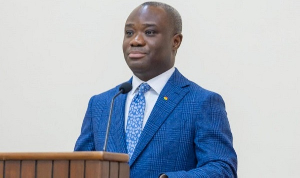 Felix Kwakye Ofosu is the Member of Parliament of Abura-Asebu-Kwamankese
Felix Kwakye Ofosu is the Member of Parliament of Abura-Asebu-Kwamankese
The Minister of State in charge of Government Communications, Felix Kwakye Ofosu, has dismissed and debunked claims from individuals associated with the opposition New Patriotic Party (NPP) regarding the budget allocations made to the Office of the President and the Office of Government Machinery.
Clearing the air and setting the records straight on the budgetary allocations, Kwakye Ofosu said that the funds are designated for the payment of civil servants working in some state media agencies, which have now been moved to the Office of the President for budgetary purposes.
He explained that these organisations have been brought under the jurisdiction of government communications following the reduction and merging of ministries from 30 to 23.
He added that the workers in some of these agencies need to be accounted for in the budgetary process.
“Because President Mahama reduced the number of ministries from 30 to 23, some agencies that used to operate under the collapsed ministries have been moved to the Office of the President for budgetary purposes.
“Because when the budget is being prepared, the staff of those agencies have to be accounted for. That accounting has to go through a mother agency,” the minister clarified.
Kwakye Ofosu provided specific examples to offer clearer and more visual clarification, aiming to resolve any remaining confusion.
“There was a Ministry of Information which was headed by a minister and had 76 directors and staff, civil servants. That ministry doesn’t exist anymore so all the directors and civil servants have left. Some of them have been reassigned. Now the president appointed me as his Spokesperson and Minister of States for Government Communication. That means all the agencies that used to work under the Ministry of Information have had to come under my jurisdiction.
“There are some of them who are state owned enterprises like the Ghana Publishing Company limited, Graphic Communication Group and New Times Corporation. They are state owned enterprise so now they fall under SIGA. But the Ghana News Agency and the Ghana Broadcasting Corporation, the Information Service Departments and what have you, fall under me. Now, the staff of these organisations are civil servants who have to be paid,” he added.
The Abura-Asebu-Kwamankese lawmaker further revealed that the GH¢2.7 billion allocated is intended solely to cover the payment of salaries for these civil servants, as well as for the agencies that make up the government machinery, and not for other purposes, as has been claimed.
“It is not that the Minister of Finance has allocated GH¢2.7 billion to squander. No, all the 30 agencies that operate under the Office of the President now have their salaries going through the process that is outlined in the budget. So, the GH¢2.7 billion is for them. It is not for president’s use,” he indicated.
The minister criticised Gideon Boako, MP for Tano North, accusing him of misinforming Ghanaians in an attempt to create disaffection for President Mahama.
“Gideon Boako is peddling falsehood in a desperate effort to provide excuses for the wanton waste that they superintended in this country. And that is why you, the people of Ghana, voted them out and gave the mandate to President Mahama. He is committed to using your resources judiciously so that you will find that it is possible to achieve a lot with fewer people,” he said.
His comments follows claims by Gideon Boako, the Member of Parliament for Tano North, that the government is spending largely despite having a lean government.
MAG/AE
Meanwhile, catch the first in the series of our special episodes on Forgotten Forts on People and Places on GhanaWeb TV below. This episode focuses on Fort Amsterdam at Abandze:
DreamChild Foundation Honours Dr. Ama Amissah
Nana Dr. Ama Amissah (right) receiving her citation from Sheila Amoakohene
DreamChild Foundation, organisers of a musical event dubbed ‘HoodTalk Festival’, has expressed its profound gratitude to HRM Nana Dr. Ama Amissah for immensely contributing towards the success of the music festival.
The foundation, in partnership with Virtual Hub, organised the music festival in five regions last year to raise a provisional sum of $14 million for the construction of five paediatric clinics.
The concert held in Kumasi, Accra, Ho, Tamale, among others attracted a number of notable figures from business institutions, including MCEs and traditional leaders.
The festival is also meant to help unite voices for the betterment of the African child and also help empower and support African children by harnessing the power of music and arts through community engagement.
Ms. Sheila Amoakohene, wife of Kofi Amoakohene, co-founder of the foundation, on behalf of the Chairman of the Foundation, Olorogun Oskar Ibru, presented a certificate of appreciation to HRM Nana Dr. Ama Amissah, Paramount Queen Mother of Mankessim at a short ceremony in Accra.
In her acceptance speech after receiving the certificate, Nana Dr. Ama Amissah called all and sundry to support the DreamChild Foundation’s drive to raise funds to build paediatric clinics.
As a traditional ruler, she combines the dual roles of administration and adjudication; mobilising her people for development and settling disputes among them, chairing and sitting on various judicial committees with original and appellate jurisdiction on all matters affecting chieftaincy at the regional and national levels.
Nanahemaa together with the king of the traditional area has remarkably strengthened the Mankessim Traditional Council as a local institution for the prosperity of the people.
She has enhanced the unity of the queen mothers and the people of Mankessim.
By George Clifford Owusu
NPP Youth Lock Up Nanton Party Office Over Members’ Suspension
Nanton NPP office locked up by the youth groups
The Coalition of New Patriotic Party (NPP) Youth Groups in the Nanton Constituency, has locked up the party office in the constituency.
Their action is a protest against the suspension of some party executives and members in the constituency.
The NPP youth groups, have therefore petitioned the regional and national levels of the party to revoke the suspension of the executives and party members with immediate effect.
“As loyalist members of the NPP, we believe this decision is not only unfair but also detrimental to the unity and progress of the party, and therefore appeal to your high office to take immediate steps to revoke the suspension,” the group stated.
A statement read by Ibrahim Abdul Fatawu, convener of the Coalition of NPP Youth Groups, said rebuilding should be the topmost priority of the party and not the suspension of its members.
“The NPP lost both the presidential and parliamentary elections in the Nanton Constituency, and so the focus of the party should be rebuilding, uniting its members and strategising to recapture power in 2028,” he stated.
He indicated that suspending dedicated party members only worsens and weakens the party’s strength in the constituency.
“The constituency chairman and his committee did not grant the suspended members a fair hearing before taking this decision. As a Democratic Party that upholds the rule of law, it is unacceptable to suspend party members without giving them an opportunity to defend themselves, and so due processes must always be followed to ensure transparency and fairness,” he pointed out.
“If this suspension is allowed to stand, it will send a very bad signal to party members and sympathisers. It will discourage people from committing their time, energy, and resources to the party, knowing that they could be unfairly targeted in the future. We strongly believe that if this divisive action is not reversed and a more responsible approach is not taken to bring the party together, the future of the NPP in the Nanton Constituency will be very bleak,” he added.
The NPP in the Nanton Constituency suspended 34 members of the party for misconduct in the 2024 general election.
The 34 suspended members consist of polling station executives, electoral area coordinators, constituency executives among others.
A letter sighted by DAILY GUIDE and signed by the NPP Nanton Constituency Chairman, Abukari Inusah, indicated that on January 23, 2025, a meeting of the Council of Elders, Council of Patrons, and Constituency Executives unanimously adopted the decision to suspend the party members.
According to Mr. Inusah, several complaints were submitted to the party’s leadership by other party members accusing the suspended members of arrogantly violating the party’s constitution.
FROM Eric Kombat, Nanton
Communication Faux Pas –
On Tuesday, the National Democratic Congress (NDC) government through the Finance Minister Dr. Cassiel Ato Forson served Ghanaians with their first budget statement since assuming the reins of governance.
Of course as it is the standard, both the Majority and Minority in Parliament have expressed their opinions on the presentation.
In the coming days, diverging opinions will be proffered by different persons depending upon the side of the political aisle they belong to.
Be it as it may, we have noticed communication challenges in the presentation of the minister regarding the abolition of the betting tax and the response of the former Finance Minister, Dr. Mohammed Amin Adam.
Both finance experts have not been helpful in portions of their communication, leading to avoidable ambiguities. While Dr. Amin Adam’s has been described as a slip of tongue, which we have been told would be addressed during a press engagement as announced by Dr. Patrick Boamah, Member of Parliament for Okaikwei Central.
It is about the abolitions of the betting tax and the withholding of a percentage of winnings, both conveying varying meanings. The confusion in the communications can be attributed to the propaganda dividends which the Finance Minister sought to derive as ‘we have delivered rhymed in the presentation.’
The minister was captured as stating that the withholding of ten percent winning tax on lotteries otherwise known as betting tax had been abolished. The ambiguity in the foregone gave fodder for politicians to engage each other for most part of the delivery day and the day after.
Matters were not helped when the former Finance Minister, when he jumped in to set the records straight, suffered a goof. He stated that the erstwhile government did not collect taxes on betting because the policy had not been implemented. Lotteries tax, for those conversant with the subject, differ from betting tax.
“Amin Adam’s statement on the New Patriotic Party (NPP) Government never collecting betting tax was a miscommunication and will be addressed in an upcoming press briefing,” Dr. Patrick Boamah said.
The importance of effective communication which gives no room for manipulation or outright propaganda should not be lost on politicians.
Even when the correction is done, later mischief-makers would hang on to the miscommunicated stuff as was the case with the number of beneficiaries of the Free Senior High School (SHS) policy. The former Education Minister, Dr. Yaw Osei Adutwum, even after correcting himself following the release of a figure which was on a high side, still endured sneers from his colleagues on the other side.
Even as the fallouts from the miscommunications continue to drop on the media space, questions were posed about the quality of the budget and for that matter its real impact on the people.
The highlight of the NDC manifesto, the ambiguous 24-hour economy, missed an opportunity to be explained in-depth. It was simply not mentioned let alone being allocated funds as did other initiatives of the NDC such as the Gold Board.
If the policy is still in the works and being worked upon, then we are afraid it won’t fly. Those who expressed misgivings about it when it was mooted have no cause to regret their skepticisms.
UG Suspends Lecturer and 16 Students Amid Sexual Harassment and Misconduct Allegations
In a decisive move to uphold institutional integrity, the University of Ghana (UG) has suspended a lecturer and 16 students following allegations of sexual harassment, drug-related offenses, and other forms of misconduct. This action underscores the university’s commitment to maintaining a safe and ethical academic environment.
Details of the Allegations
The suspended lecturer faces serious accusations of engaging in inappropriate behavior with students, violating the university’s strict policies against sexual misconduct. Such actions not only breach ethical standards but also compromise the trust and safety essential in educational settings.
The 16 students are implicated in various offenses, including drug possession and consumption, as well as other forms of misconduct that contravene the university’s code of conduct. These allegations highlight concerns about student behavior and adherence to institutional regulations.
University’s Respons
UG’s administration has acted promptly by suspending the individuals involved, pending thorough investigations. This approach aligns with recent actions taken by other universities in the region to address similar issues. For instance, the University of Nigeria, Nsukka, recently suspended a lecturer for alleged sexual harassment, emphasizing its zero-tolerance policy towards such misconduct. Similarly, the Federal University, Lokoja, dismissed four lecturers over allegations of sexual harassment and examination misconduct.
Commitment to Ethical Standards
The University of Ghana remains steadfast in its commitment to fostering an environment where all members students and staff alike are held to the highest ethical standards. The institution has reiterated its zero-tolerance stance on behaviors that threaten the well-being and rights of its community members.
Next Steps
The university has initiated comprehensive investigations into these allegations. The outcomes will determine any further disciplinary actions, ensuring that due process is followed and that justice is served for all parties involved.
This development serves as a critical reminder of the ongoing challenges educational institutions face in upholding ethical conduct and the importance of vigilant enforcement of policies designed to protect their communities.
Ghanweb
Only 3 SOEs paid dividends in 2024 – Finance Minister Ato Forson
The number of State-Owned Enterprises (SOEs) contributing dividends to Ghana’s economy remains alarmingly low, with only three SOEs making payments in 2024.
This was revealed by Finance Minister Dr. Cassiel Ato Forson during a meeting to evaluate the performance of specified entities.
Despite the government’s push for improved financial management and accountability, Ghana’s dividend-paying SOEs have stagnated at just three entities, highlighting the persistent struggles within the sector.
According to Dr. Forson, the State Housing Company, Ghana Reinsurance Company, and TDC Development Company were the only SOEs that managed to pay dividends in 2024.
Collectively, they contributed just GH¢28.7 million to the national coffers.
This figure, while an improvement from previous years, remains modest given the significant government investments in SOEs.
In comparison, only two SOEs—Ghana Ports and Harbours Authority (GPHA) and Ghana Reinsurance Company—paid dividends in 2018.
By 2019, the number increased to three, with GPHA, Ghana Re, and TDC contributing a total of GH¢14.4 million.
However, by 2024, State Housing Company replaced GPHA, maintaining the number of dividend-paying SOEs at three.
The lack of dividend payments reflects the broader financial instability among SOEs, many of which are operating at a loss.
Major institutions such as the Electricity Company of Ghana (ECG), Ghana Cocoa Board (COCOBOD), and Ghana Grid Company (GRIDCo) have been posting massive losses, limiting their ability to contribute to the government’s revenue.
Dr. Forson emphasized that the financial struggles of SOEs pose a major fiscal risk to the economy and called for urgent reforms to ensure these entities become financially sustainable.
To address these challenges, the Finance Minister outlined key measures, including improved corporate governance to ensure SOEs operate efficiently and profitably, enhanced financial discipline to reduce waste and mismanagement and strict enforcement of reporting requirements under the Public Financial Management (PFM) Act, 2016.
Dr. Forson stressed that the government will enforce compliance with financial reporting obligations and impose sanctions on SOEs that fail to meet transparency and accountability standards.
With only three out of dozens of SOEs managing to pay dividends, there is growing concern over the viability and long-term sustainability of these state-run enterprises.
The government now faces increasing pressure to implement effective reforms that will drive profitability and improve SOE contributions to national development.
DISCLAIMER: The Views, Comments, Opinions, Contributions and Statements made by Readers and Contributors on this platform do not necessarily represent the views or policy of Multimedia Group Limited.
Yaw Boadu-Ayeboafoh appointed as Head of Amin Music
Amin Music has officially appointed Yaw Boadu-Ayeboafoh, popularly known as NYB, as the head of the label, marking a new chapter for the rising music company.
NYB, a well-respected figure in the Ghanaian entertainment industry, brings a wealth of experience in artist management, digital marketing, and music business strategy. His appointment signals Amin Music’s commitment to solidifying its presence in the industry and elevating its artists to new heights.
In his new role, NYB will oversee the label’s operations, spearhead artist development, and drive strategic partnerships. With a keen eye for talent and an in-depth understanding of the evolving music landscape, he is expected to implement innovative initiatives to expand Amin Music’s influence locally and internationally.
Speaking on his appointment, NYB expressed enthusiasm about the journey ahead. “Amin Music has a vision that aligns with my passion for developing artists and pushing Ghanaian music onto the global stage. I am excited to lead this team and create opportunities that will impact the industry positively.”
The appointment comes at a time when Amin Music is positioning itself as a powerhouse in the Ghanaian music scene. With NYB at the helm, industry insiders anticipate significant growth and groundbreaking projects from the label. His tenure officially began in February 2025, with a focus on signing and nurturing talent, enhancing the label’s digital strategy, and strengthening its brand presence.
Fans and industry stakeholders will be watching closely as NYB takes Amin Music to the next level.
Amin Music is the music division of Amin Group, and it is a full-service management and entertainment company. Under its roster is fast-rising Ghanaian singer, RCEE.
Kofi Adomah breaks silence on eye shooting incident, involvements of Ibrahim Mahama
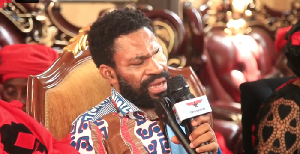 The current state of popular broadcaster, Kofi Adomah Nwanwanii
The current state of popular broadcaster, Kofi Adomah Nwanwanii
Popular Ghanaian broadcaster, Kofi Adomah Nwanwanii, is addressing the media for the first time since his eye incident occurred.
The press briefing, being held at his residence at Oyarifa, in Accra, is aimed at addressing issues surrounding the incident, clarifying details, and providing updates on his situation.
With support from his wife and family members, Kofi Adomah is sharing the events leading up to the incident, his challenging experience thus far, and more.
Watch the video below:
EB
Cedi will perform well – Dr. Ato Forson on depreciation of local currency
The Minister for Finance, Dr. Cassiel Ato Forson, has expressed optimism about the strengthening of the local currency against major trading currencies.
According to him, the fundamentals of the economy are strong, and the Cedi is poised to perform well.
In an interview with Channel One TV, monitored by GhanaWeb Business, Dr. Forson addressed concerns about the depreciation of the Cedi and other economic issues.
He stated, “I have faith in the Cedi. I believe that the Cedi will do well based on the fundamentals and the work we have done so far. I am confident that the Cedi will perform well.”
His remarks follow a caution from the Governor of the Bank of Ghana, Dr. Johnson Asiama, who warned that the recent decline in Treasury Bill (T-Bill) rates could potentially lead to a depreciation of the Cedi.
Meanwhile, checks by GhanaWeb Business on March 13, 2025, at 10:00 AM indicate that the Cedi is trading at GH¢16.10 to the US dollar.
The Pound Sterling is trading at GH¢20.90, while the Euro is trading at GH¢17.60 in the retail market.
SA/MA
Watch the latest edition of BizTech below:
Click here to follow the GhanaWeb Business WhatsApp channel
We need the Greater Accra chiefs to qualify for the World Cup
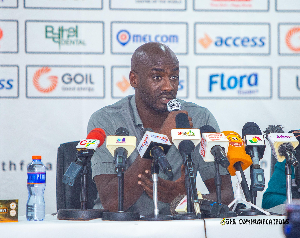 Black Stars head coach, Otto Addo
Black Stars head coach, Otto Addo
Black Stars head coach, Otto Addo, has appealed for support from the Greater Accra chiefs in the quest to qualify Ghana for the 2026 FIFA World Cup.
Otto Addo made the remarks after paying a courtesy call on the GA Mantse ahead of the upcoming qualifiers.
He emphasised that the Black Stars need victories to secure World Cup qualification but added that the team also requires support from Ghanaians and traditional leaders.
“Ghana urgently needs victories to qualify for the World Cup. We need the support of all Ghanaians, especially the GA chiefs, to help us in this task so the whole nation can be happy,” he said, as quoted by Sporty FM.
The German-trained gaffer has been under pressure after overseeing an awful 2025 AFCON qualifiers, finishing bottom of the group with zero wins.
As a result, Otto Addo aims to turn around his poor run with good results in the World Cup qualifiers against Chad and Madagascar.
The Black Stars will face Chad in Accra on Friday, March 21, before travelling to Morocco to take on Madagascar on March 24, 2025.
EE/BB
Meanwhile, watch as football fans slam NPP over misleading betting tax comments
DRC conflict reignites dark memories of Congo wars
In parts of the Democratic Republic of the Congo (DRC), communities are gearing up for war or fleeing to safety amid the advance of M23 rebels, who captured the key eastern cities of Goma and Bukavu in recent weeks, leaving devastation in their wake.
The rebel group, which the United Nations says is backed by neighbouring Rwanda, has also closed in on Walikale, a major mining hub, while Kinshasa’s offer of a $5m reward for the capture of M23 leaders has not slowed the group down.
While M23 marches on in North and South Kivu, Ugandan troops have intensified deployments across their border with the DRC in Ituri province, only a few hours from the rebel-held regions. The Ugandan army says it is battling the Allied Democratic Forces (ADF) and the Cooperative for the Development of Congo (CODECO) – two of several dozen armed groups operating in the DRC. A recent flare-up of CODECO attacks on civilians in February saw at least 51 people killed, prompting Uganda to send additional soldiers to boost its 5,000-strong deployment inside the DRC.
For political observers, the growing presence of both Rwandan and Ugandan soldiers in the DRC is an eerie replay of a painful past, one they fear could again lead to a bigger, regional war if not contained.
“We are indeed seeing a replica of the Second Congo War with the same actors but in slightly different configurations,” analyst Paul Nantulya of the Africa Center for Strategic Studies told Al Jazeera, referring to the leading roles both countries played in what’s now referred to as the 1998 “Great Africa War” when Rwandan and Ugandan troops invaded the DRC.
Several African countries also followed suit, backing either the DRC or the Rwandan-led side, as well as dozens of local militias on either end. The result was a humanitarian crisis that saw an estimated five million deaths; the DRC looted of mineral resources like gold; and the emergence of dozens of armed groups, including the M23.
Several African countries also followed suit, backing either the DRC or the Rwandan-led side, as well as dozens of local militias on either end. The result was a humanitarian crisis that saw an estimated five million deaths; the DRC looted of mineral resources like gold; and the emergence of dozens of armed groups, including the M23.
At the time, thousands across the globe protested against the atrocities in the DRC, calling for an end to the looting and killings. Today, illegal mining and smuggling from the DRC’s mines – which provide 70 percent of the global supply of coltan and cobalt that powers electronics – have largely continued, as have deaths and displacements due to armed group activity.
“Appetite for political negotiations is low and international pressure and coercive measures have not had the deterrent effect they once had in previous bouts of crisis,” Nantulya added, referencing the European Union’s suspension of military aid support to Rwanda, and United States sanctions on key Rwandan army officials.
The DRC has been in the throes of low-level violent conflict for more than three decades. In that time, more than six million people have been killed, and millions more displaced.
A complex mix of issues is to blame, among them: grievances by Kigali that the DRC harbours anti-Rwanda rebels who fled after the Hutu genocide against the Tutsis in 1994; ethnic tensions between Congolese Tutsis and their neighbours; a grab for mineral resources in insecure eastern DRC; and corruption in the Congolese government.
Rwanda’s invasion of the DRC prompted both the First and Second Congo Wars (1996-1997 and 1998-2003), as Kigali claimed to be pursuing Hutu genocidaires who had fled across the border. After President Paul Kagame’s army took power in Rwanda in 1994, the fleeing Hutu groups amassed in refugee camps in the DRC where they launched renewed attacks on Tutsis.
Uganda, where Kagame and his troops trained for years before taking power in Kigali, joined Rwanda’s side in the DRC. Both countries then backed a Congolese rebel group, led by Laurent Kabila, to unseat the dictator, President Mobutu Sese Seko. Mobutu, at the time, had many regional enemies. Several countries backed Kabila by sending troops or weapons, including Angola, Burundi, Ethiopia, Eritrea and South Africa.
However, when Kabila, upon gaining power in 1997, switched sides and ordered Rwandan and Ugandan troops out of the DRC within a day, Kigali grew vengeful. In 1998, Rwanda and Uganda invaded again, sponsoring a Tutsi militia that occupied resource-rich parts of eastern DRC. Kabila managed to rally other African nations to his side, including Namibia, Zimbabwe, Sudan, Chad and Angola, which had now switched sides under a new government. The UN deployed a peacekeeping force, MONUSCO. Kabila also enlisted the help of Hutu militia groups in eastern DRC, deepening ethnic tensions with Congolese Tutsis who are perceived as pro-Rwanda.
The Congo wars ended in 2003, but low-intensity violence persists, leading some experts to say it was never actually over.
Several reports in the aftermath, including from the UN, accused Rwanda and Uganda of targeting Hutu civilians and of looting and smuggling DRC’s coffee, diamonds, timber, coltan and other resources. Relatives of Ugandan President Yoweri Museveni, including his younger brother Salim Saleh and Saleh’s wife, Jovia Akandwanaho, were named as the operators of companies involved in trading illicit items, especially during the second war. Congolese politicians and soldiers were also implicated.
“Natural resource exploitation became increasingly attractive, not only because it enabled these groups to finance their war efforts but also because, for a large number of political/military leaders, it was a source of personal enrichment. Natural resources thus gradually became a driving force behind the war,” one UN report read.
It also accused “foreign buyers willing to handle these goods”, including traders in the DRC and multiple countries. In 2005, Anvil, an Australian-Canadian mining company, was accused of providing logistics to the Congolese army that helped it violently suppress a small uprising in southern DRC.
The International Court of Justice (ICJ) found Kampala guilty of “violating international law” in 2022 and ordered Uganda to pay $325m to the DRC for losses and damages during the wars. Kampala has begun instalment payments and is expected to complete them by 2027. Although the DRC also sued Rwanda, the ICJ could not rule in that case because Rwanda did not recognise its jurisdiction.
In the most recent legal battle in 2023, the DRC again sued Rwanda at the East African Court of Justice in Arusha, Tanzania, arguing that by backing M23 rebels, it violated Kinshasa’s territorial integrity against international law. That case is still ongoing. Rwanda has repeatedly denied supporting M23.
Countries that took part in the Congo wars are once again in the DRC. And again, a Congolese politician is marching on Kinshasa, this time Corneille Nangaa, leader of the rebel Congo River Alliance (AFC). A one-time elections commissioner, Nangaa fell out with Congolese President Felix Tshisekedi and then allied with M23 in December 2023. He now leads the AFC-M23 coalition.
However, Accra-based analyst Kambale Musuvali of the Center for Congo Research, told Al Jazeera that interference from DRC’s closest neighbours never stopped.
“When we say Uganda and Rwanda are in the Congo again, it is from the perspective that they left and they are returning,” Musavuli, who is Congolese, told Al Jazeera. In reality, the two governments had continuously maintained a hold on the situation in the DRC, he said.
Across the continent, it’s fairly clear where most parties stand in this iteration of the conflict: Rwanda’s support for M23 is documented by the UN, which says about 3,000 Rwandan troops are currently supporting the rebels. Burundi, under President Evariste Ndayishimiye – who has frosty relations with Kagame – deployed at least 10,000 troops to support the DRC army. South African troops lead the Southern African Development Community (SADC) Mission in the DRC and have been fighting the M23 alongside Malawian and Tanzanian soldiers since January. Angola and Kenya are leading two separate peace negotiations, while Chad is considering a request from Kinshasa to deploy troops.
Uganda, though, appears to be the wild card. The country was last year implicated by a UN group of experts of providing support to M23 by allowing its territory to be used for launching attacks, and areas the Ugandan army currently occupies in the DRC are so close to M23-held areas that analysts believe there could be some collusion. But Kampala denies any connections with M23.
“Uganda is the big elephant in the room,” analyst Nantulya said. Kampala, he added, is playing an ambiguous balancing act, working to secure a part of the DRC, while committing to not standing in M23’s way on the other hand.
DRC’s resources also remain a focal point in this conflict. So far, M23 has taken over vast expanses of North and South Kivu, which is home to massive gold and coltan deposits. There’s speculation that the DRC’s gold has been funding the armed group, which has surprised analysts with its high-grade weaponry and telecommunications systems. The UN experts group estimates that M23 earns about $800,000 monthly from illegal mineral sales.
Ending the protracted crisis would involve a large-scale effort by African countries to get both sides to negotiate, analysts say, but also to put pressure on the DRC government itself to fix its internal affairs: Tshisekedi suffers a legitimacy crisis as Congolese popularly rejected elections that brought him into a second term. Weaknesses and ingrained corruption in the country’s military may have helped Congolese defences to falter as M23 advanced. And feelings of marginalisation are still heavy in Congolese-Tutsi communities, worsening tensions.
Kinshasa’s recent calls for a national dialogue, in addition to peace talks led by regional parties, are important steps, Musavuli said. So is the recent visit by International Criminal Court prosecutor, Karim Khan, who pledged to prosecute all sides accused of rights violations in the conflict, including indiscriminate killings and sexual abuse of civilians, he added.
“I usually get asked, ‘What about the Rwandan government? What about the Ugandan government?’ But nobody is talking about the [Congolese] people,” Musavuli said.
“We’re saying that the people of the Congo have to be alive so that they can rebuild the country for the benefit of the African continent. That’s why DRC needs a break. Not just for themselves, but for the entire African continent.”
We Didn’t Back Mahama for Financial Gain, We Did It for the Sake of Ghana – Christiana Awuni
We Didn’t Back Mahama for Financial Gain, We Did It for the Sake of Ghana – Christiana Awuni
News Hub Creator5h
Ghanaians have spoken, and President John Mahama, the people’s choice, has returned to power. While many are celebrating this victory, actress Christiana Awuni has a message for those questioning her motives. She made it clear in a bold statement that her support for Mahama was never about personal gain, but rather about the progress of Ghana.
With heartfelt conviction, Awuni rejected claims that celebrities back politicians solely for financial reasons. She emphasized that true leadership is defined by vision and development, which is why she supported Mahama. “We didn’t support Mahama for money; we supported him because we believe in Ghana,” she asserted.
Her words strike a chord with many Ghanaians who voted not out of self-interest, but out of hope for a brighter future. For years, Ghanaian politics has been marred by accusations of bribery and self-serving motives. However, Awuni’s statement serves as a powerful reminder that not everyone is in it for personal gain—some genuinely care about the country.
With Mahama back in office, expectations are high. Citizens are hoping for real change, improved infrastructure, better healthcare, and opportunities for the youth. Awuni’s message calls on all Ghanaians to prioritize the country’s future, regardless of political allegiance.
As the new administration takes charge, one thing is clear—support for Mahama was not solely about politics. It was driven by hope, belief, and the shared dream of a better Ghana.
SOURCE
“Only 30 political appointees serve at the presidency” – Mahama
President John Dramani Mahama has reaffirmed his commitment to running a lean government, stating that only 30 political appointees currently serve at the Jubilee House.
He emphasized that this aligns with his promise to reduce government expenditure and ensure better efficiency.
At the swearing-in ceremony of newly approved ministers and deputy ministers on March 12, Mahama clarified that out of the 30 political appointees, 27 are presidential staffers, and three are directors of key government initiatives, all pending approval from the Council of State.
Kwahu Mountain Marathon Set For April 19
Edward Boahen
The sixth edition of the annual event dubbed ‘Kwahu Mountain Marathon’ will take place on Saturday, April 19, 2025, with over 1,000 competitors scheduled to participate.
The 21km race, organised by Marathon Foundation Ghana in collaboration with Kwahu Traditional Council, would see athletes compete for cash prizes as well as products from sponsors.
The marathon would use its usual route from Nkawkaw Goil Fuel Station through Obomeng, Mpraeso and to Kwahu Traditional Council’s Office at Bepong.
According to Mr. Edward Boahen, Project Manager of the Kwahu Mountain Marathon, this year’s edition will include participation certification for all competing athletes.
He added that medals would be awarded to participants in both the men’s and women’s races who finished between first and 20th.
According to Mr. Boahen, the marathon’s goals were to discover talents, encourage sports tourism, and present a favourable image of the Kwahu Easter festival celebrations to visitors.
“We are a few days away from the biggest marathon in the country, and we are excited about this year’s edition because there will be so many side attractions.
“We want to urge all athletes to prepare for the event and also plead with corporate organisations to partner with us and make this event a success,” said. Mr. Boahen.
Additionally, he mentioned that all athletes competing in the race would receive free lodging during the event.
Other side attractions of the marathon would include a health screening exercise, a tour of Kwahu tourists’ sites, among others.
Athletes can register via the Kwahu Mountain Marathon website.
Govt to desilt choked drains ahead of rainy season
The Anti-Flood Taskforce formed by the government is set to begin desilting drains and demolishing structures in waterways to prevent flooding across Accra.
The six-member taskforce is chaired by Deputy Chief of Staff in Charge of Operations, Stanislav Xoese Dogbe with Legal Counsel to the President, Marietta Brew as Secretary.
Other members include the Minister for Water Resources Works and Housing, Kenneth Gilbert Adjei, Minister for Local Government, Ahmed Ibrahim, National Security Coordinator, DCOP Abdul Osman Razak and the Deputy Director General of the National Disaster Management Organization (NADMO), Teddy Addi.
The taskforce embarked on an aerial recce on Tuesday, March 12, to assess flood-prone areas to gather essential data to prevent future flooding as part of its field activities.
Chairman of the taskforce, Stanislav Xoese Dogbe stated that stricter actions would be implemented and announced which will begin with the desilting of drains with immediate effect.
“From the air, yes, we saw the problem, but we need to go there and then work with the Ministry of Water Resources, Ministry of Local Government and then the 48 Engineers Regiment to begin the process of desilting the drains that have to be desilted.
“Some tough decisions would have to be made, especially with walls that have been built blocking the water flow.”
Explore the world of impactful news with CitiNewsroom on WhatsApp!
Click on the link to join the Citi Newsroom channel for curated, meaningful stories tailored just for YOU:
https://whatsapp.com/channel/0029VaCYzPRAYlUPudDDe53x
No spam, just the stories that truly matter! #StayInformed #CitiNewsroom #CNRDigital
Actor Nkubi Delights Fans With Adorable Video Of Him Teaching Daughter To Walk
Nkubi, shared a heartwarming video on social media.
The video features Nkubi helping his one-year-old daughter take her first steps.
Nkubi gently holds his daughter’s hands, showcasing a special bonding moment.
Nollywood actor, skit maker, and on-air personality (OAP) Victor Udochukwu Nwaogu, popularly known as Nkubi, has melted hearts on social media with a touching moment featuring his daughter.
Ohemaa Woyeje Breaks Silence after Angel FM CEO Allegedly Sent ‘Thugs’ to Attack and Sack her from Work
Ghanaian media personality Ohemaa Woyeje, has broken her silence after the CEO of her company, Angel FM, allegedly sent thugs to attack her and evict her from the company’s premises.
In a shocking turn of events on Wednesday, a video emerged on social media showing a commotion on the premises of Angel FM, which is part of the Angel Broadcasting Network (ABN), founded and owned by Ghanaian entrepreneur Dr Kwaku Oteng.
In the video, some masked thugs are seen preventing Ohemaa Woyeje, a longtime Angel Fm employee, from making her way onto the grounds of Angel Fm, where she works.
Woyeje is heard exchanging words with on-air talent, Saddick Adams aka Sports Obama, as well as other people on the scene.
Woyeje was told that she was not allowed back on the premises while she insisted that no communication had been made to her regarding such a decision being taken.
After the video went viral, Ohemaa took to social media to address the controversy.
“What you heard about the CEO Vincent Opare ordered thugs attack on me at Angel Fm Accra premises this morning is the total truth,” Ohemaa wrote. She added that the police are investigating the attack and that more updates will be coming soon.
NPP reacts to Dr. Ato Forson’s budget statement
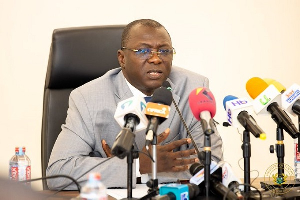 Former Minister of Finance Dr. Mohammed Amin Adam
Former Minister of Finance Dr. Mohammed Amin Adam
The Member of Parliament (MP) from the opposition New Patriotic Party (NPP) is addressing Ghanaians on the 2025 Budget and Economic Policy Statement presented by the Minister of Finance, Dr. Cassiel Ato Forson.
The minority caucus is expected to hold a press conference at Parliament on Thursday, March 13, 2025, to respond to claims made by the Finance Minister against the Nana Addo Dankwa Akufo-Addo government.
They are also expected to raise concerns about the state of the economy as presented by Dr. Ato Forson.
Watch a livestream of the event below:
BAI/MA
Veep Naana Jane Opoku, Gifty Anti & Anita Erskine Named Among Africa’s Phenomenal 50 Women
Veep Naana Jane Opoku-Agyemang, Gifty Anti
Vice President Prof. Naana Jane Opoku—Agyemang along with renowned broadcasters and media personalities, Oheneyere Gifty Anti and Anita Erskine—has been named among Africa’s Phenomenal 50 Women. This prestigious list, compiled by ICS Africa, celebrates outstanding African women making an impact across various sectors.
The Phenomenal 50 Women list highlights trailblazers excelling in fields such as business, governance, media, education, and advocacy. Each honoree represents a unique facet of leadership, contributing to transformative changes and inspiring future generations across the continent.
Gifty Anti was recognized in the Media and Communication category for her exceptional work in journalism and broadcasting. Joining her on the list is Anita Erskine, another influential media figure, whose contributions continue to shape the communication landscape in Ghana and beyond. They are featured alongside other prominent African media leaders including Nigeria’s Mo Abudu, Farida Karoney, and Edith Kimani.
Prof. Opoku-Agyemang’s inclusion is a significant celebration of her efforts, becoming Ghana’s first female Vice President.
Being honoured alongside acclaimed media personalities highlights the diverse expertise and influence that Ghanaian women bring to the forefront of African development.
The announcement of the Phenomenal 50 Women list demonstrates the strides being made by African women in various sectors.
As these women celebrate their recognition, their achievements inspire countless others to pursue excellence and transformative leadership, reinforcing the message that Africa’s future is bright with visionary women at its helm.
By Francis Addo
EC to conduct Nkoranza North and South District level elections May 13
The Electoral Commission (EC) has announced that the Nkoranza North and South District Level Elections will take place on Tuesday, May 13, 2025.
This follows the expiration of the tenure of Assembly and Unit Committee Members, in line with the District Level Elections Regulations, 2015 (C.I. 89).
Additionally, the EC will hold by-elections in electoral areas where vacancies have occurred due to the death or resignation of some Assembly Members. These by-elections will also be conducted on May 13, 2025.
Individuals interested in contesting the elections can obtain Nomination Forms free of charge from the District Offices of the EC or download them from the Commission’s website (www.ec.gov.gh).
Completed forms must be submitted between April 1 and April 4, 2025, either in person or through a proposer or seconder. Submission hours are from 9:00 AM – 12:00 PM and 2:00 PM – 5:00 PM.
Candidates must also include two passport-sized photographs on a red background with their submission.
The Electoral Commission has urged interested candidates to adhere to the outlined procedures and deadlines.
“All inquiries related to these elections should be addressed to the returning officer at the district office of the Commission,” the EC stated.
The Commission reaffirmed its commitment to free, fair, and transparent elections, ensuring a smooth electoral process in the Nkoranza North and South districts.

Clergyman Caught With GHS 345k Stolen Tithe Inside His Car
Residents of Madina Constituency were left stunned after police arrested Rev. Daniel Kwame Boateng, a well-known clergyman, for allegedly stealing church tithes amounting to GHS 345,000, according to a report by MyNewsGH.
The shocking incident occurred on Sunday evening when police officers stopped his vehicle during a routine check.
Rev. Boateng, the leader of Holy Fire Ministries International, had just concluded a church service and was seen driving off in a hurry. A concerned church member, who had observed his suspicious behaviour on multiple occasions, tipped off the authorities.
“I have been noticing his strange behaviour after every service. Today, I decided to inform the police,” the anonymous church member revealed.
During a search of his Toyota Land Cruiser, officers discovered large sums of money hidden in envelopes and bags under the seats and in the trunk.
When questioned, Rev. Boateng claimed the money was intended for church projects. However, church leadership denied any knowledge of the funds.
The revelation left senior pastors and church elders furious. Madam Esther Addo, a church elder, expressed her disappointment, saying, “We always trusted him. We never imagined he could steal from the Lord’s house. This is heartbreaking.”
Another church official disclosed that the stolen money was meant for charity programs, including aid for the needy and the construction of a new church building.
“We feel betrayed. Our members give their tithes and offerings with faith, but now look at what has happened,” he added.
DSP Kofi Mensah, the police officer handling the case, confirmed that Rev. Boateng was in custody and that investigations were ongoing.
“We found GHS 345,000 hidden in his car. He failed to provide a clear explanation of how he acquired the money, so we are treating this as a theft case. He will be taken to court soon,” DSP Mensah stated.
News of the arrest quickly spread on social media, sparking widespread disappointment.
One resident, Kwame Asiedu, remarked, “Pastors should lead by example. This is shameful!” Others called for a thorough audit of church finances to prevent similar incidents in the future.
Drop in debt-to-GDP ratio due to debt restructuring efforts
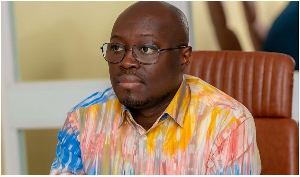 File photo of the Minister of Finance, Dr Cassiel Ato Forson
File photo of the Minister of Finance, Dr Cassiel Ato Forson
The Minister of Finance, Dr. Cassiel Ato Forson, has attributed the drop in Ghana’s debt-to-GDP ratio to the debt restructuring exercise in 2024 on the 37 percent Eurobond principal haircut, rather than the economic policies instituted by the erstwhile Akufo-Addo government.
Speaking on The Point of View on Channel One TV on Wednesday, March 12, 2025, the finance minister explained that the drop in Ghana’s debt burden was largely due to the government writing off 37% of Eurobond principal owed to investors.
“Debt-to-GDP has only come down not because of what the previous government has done, but because last year, the government gave Eurobond holders 37% principal haircuts.
“I don’t know whether they are celebrating the haircut they gave to investors,” Ato Forson said.
Additionally, the accumulated interest on these bonds was slashed by another 37%, significantly lowering the country’s debt obligations.
Ghana reached a debt restructuring agreement with its Eurobond holders, resulting in a 37% haircut on the principal of $13 billion of its debt, a significant milestone in the country’s economic recovery efforts.
The agreement resulted in a 37% reduction in the nominal value of Ghana’s debt, equivalent to a US$5 billion reduction.
He added that Ghana’s economic performance had exceeded expectations despite prevailing global financial challenges.
SP/AE
Watch the latest edition of BizTech below:
Click here to follow the GhanaWeb Business WhatsApp channel
Ablekuma North constituency fades away as results lie in limbo
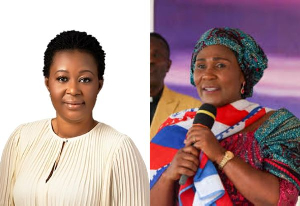 NDC’s Ewurabena Aubynn (L) and NPP’s Nana Akua Owusu Afriyie (R) both contesting Ablekuma North
NDC’s Ewurabena Aubynn (L) and NPP’s Nana Akua Owusu Afriyie (R) both contesting Ablekuma North
GhanaWeb feature by Mandy Agyemang
It has been approximately 96 days since the 2024 general elections, in which Ghanaian voters cast their ballots to determine the nation’s leadership for the next four years.
President John Dramani Mahama was elected, signaling a change in government and the election of new parliamentary representatives.
Many constituencies knew their results by the close of polls on December 7, 2024, sparking celebrations or disappointments for either incumbent or newly-elected lawmakers who were confirmed to represent the interests of constituents in Parliament, or those who lost out.
However, this was not the case for some constituencies, where the parliamentary results were contested due to reported discrepancies and procedural issues.
The results of twelve parliamentary seats in twelve constituencies were disputed, including the Ablekuma North seat.
While the remaining 11 constituencies have since had their winners declared, following a court order for the Electoral Commission to re-collate their results, Ablekuma North remains a lone constituency with unresolved collation.
Setback
The re-collation process for Ablekuma North encountered another setback after six attempts, resulting in chaos during the seventh attempt.
A group of men, allegedly affiliated with both the NDC and NPP, stormed the Electoral Commission’s office in January 2025, causing significant damages to properties, including louvre blades, which eventually led to the halting of the process.
This disruption led to the suspension of the exercise once again, leaving the results and declaration since then in limbo.
‘Thank You’ Billboards
Both parliamentary candidates: Ewurabena Aubynn of the NDC and Nana Akua Owusu Afriyie of the NPP, have declared victory for themselves.
Notably, the EC declared victory for the NDC, only to later reverse the decision and declare the NPP as the winner.
Despite the lack of an official declaration by the EC, both candidates have since erected “Thank You” billboards across the constituency to express their gratitude to constituents.
Ewurabena Aubynn’s Statement
Unperturbed by the holdup and setback, Ewurabena Aubynn, the NDC’s 2024 parliamentary candidate, has expressed her confidence that she will ultimately be declared the winner once the process is concluded.
“I have no doubt that eventually, things will fall into place. I’ve been declared, and it has been back and forth, but I am confident the right thing will be done by the EC. Sadly, it’s taken longer than expected,” she told GhanaWeb.
Electoral Commission
The Electoral Commission maintains that it remains committed to ensuring a free and fair election and has indicated plans to engage with both political parties involved to discuss the next steps for resolving the Ablekuma North dispute.
During an Inter-Party Advisory Committee (IPAC) meeting held on February 26, 2025, at the EC’s corporate office in Accra, the EC Chairperson emphasised that the meeting would involve detailed discussions on the matter.
“We will have an in-depth meeting to discuss it,” the EC Chairperson was quoted as saying by JoyNews.
Legal Battle
Meanwhile, the court has granted substituted service, allowing a bailiff to serve NPP’s Nana Akua Afriyie with documents related to the case.
Her failure to respond could impact the declaration of the results of the seat and may result in the court proceeding with the case in her absence.
As time passes, the situation in Ablekuma North appears to be gradually fading from the public’s attention, with every passing day, making the resolution of the dispute seem more distant and the hope of the constituents dwindling.
MAG/AE
You can as well watch the latest compilation of Twi news on GhanaWeb TV below:
Meanwhile, catch the first in the series of our special episodes on Forgotten Forts on People and Places on GhanaWeb TV below. This episode focuses on Fort Amsterdam at Abandze:
Reactions as businessman Nii-Armah Quaye acquires private jet, Bugatti to mark 40th birthday
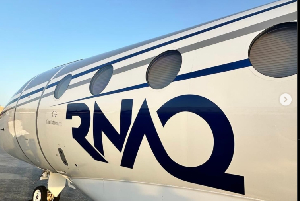 Quaye’s private jet, boldly branded with his initials, RNAQ
Quaye’s private jet, boldly branded with his initials, RNAQ
Ghanaian entrepreneur Richard Nii-Armah Quaye, CEO of Bills Microcredit, has made headlines after acquiring a branded private jet and a luxurious Bugatti Chiron as part of his 40th birthday celebrations.
The businessman, who turns 40 on March 21, 2025, took to Instagram to share the news, sparking a wave of reactions from fans and celebrities alike.
The private jet, boldly branded with his initials, RNAQ, was unveiled on his Instagram page with the caption, “…and I got myself a jet too #RNAQ40.”
The acquisition of the jet came just hours after news broke of his purchase of a Bugatti Chiron, which was cleared from Tema Port on March 11, 2025.
The sports car, which is one of the most expensive and exclusive vehicles in the world, priced between $3 million and $4 million adds to Quaye’s growing collection of luxury assets.
The businessman’s Instagram posts showcasing his new acquisitions quickly went viral, drawing mixed reactions from social media users.
Many celebrated his success and lavish lifestyle, while others expressed awe at the magnitude of his wealth.
Reggae/Dancehall act Stonebwoy, rapper Medikal, Nigerian music star Davido, and Ghanaian actor Kalybos were among the notable figures who congratulated Quaye in the comments section.
Other social media users also shared their excitement, with comments ranging from admiration to humorous disbelief.
One user commented, “Talk and Do!!!!” while another wrote, “Eii Bugatti and a jet? God bless me like this.”
Another user celebrated Quaye’s Ga heritage, stating, “I see only a Ga Man.”
See the posts below:
ID/MA
Ablekuma North constituency fades away as results lie in limbo
 NDC’s Ewurabena Aubynn (L) and NPP’s Nana Akua Owusu Afriyie (R) both contesting Ablekuma North
NDC’s Ewurabena Aubynn (L) and NPP’s Nana Akua Owusu Afriyie (R) both contesting Ablekuma North
GhanaWeb feature by Mandy Agyemang
It has been approximately 96 days since the 2024 general elections, in which Ghanaian voters cast their ballots to determine the nation’s leadership for the next four years.
President John Dramani Mahama was elected, signaling a change in government and the election of new parliamentary representatives.
Many constituencies knew their results by the close of polls on December 7, 2024, sparking celebrations or disappointments for either incumbent or newly-elected lawmakers who were confirmed to represent the interests of constituents in Parliament, or those who lost out.
However, this was not the case for some constituencies, where the parliamentary results were contested due to reported discrepancies and procedural issues.
The results of twelve parliamentary seats in twelve constituencies were disputed, including the Ablekuma North seat.
While the remaining 11 constituencies have since had their winners declared, following a court order for the Electoral Commission to re-collate their results, Ablekuma North remains a lone constituency with unresolved collation.
Setback
The re-collation process for Ablekuma North encountered another setback after six attempts, resulting in chaos during the seventh attempt.
A group of men, allegedly affiliated with both the NDC and NPP, stormed the Electoral Commission’s office in January 2025, causing significant damages to properties, including louvre blades, which eventually led to the halting of the process.
This disruption led to the suspension of the exercise once again, leaving the results and declaration since then in limbo.
‘Thank You’ Billboards
Both parliamentary candidates: Ewurabena Aubynn of the NDC and Nana Akua Owusu Afriyie of the NPP, have declared victory for themselves.
Notably, the EC declared victory for the NDC, only to later reverse the decision and declare the NPP as the winner.
Despite the lack of an official declaration by the EC, both candidates have since erected “Thank You” billboards across the constituency to express their gratitude to constituents.
Ewurabena Aubynn’s Statement
Unperturbed by the holdup and setback, Ewurabena Aubynn, the NDC’s 2024 parliamentary candidate, has expressed her confidence that she will ultimately be declared the winner once the process is concluded.
“I have no doubt that eventually, things will fall into place. I’ve been declared, and it has been back and forth, but I am confident the right thing will be done by the EC. Sadly, it’s taken longer than expected,” she told GhanaWeb.
Electoral Commission
The Electoral Commission maintains that it remains committed to ensuring a free and fair election and has indicated plans to engage with both political parties involved to discuss the next steps for resolving the Ablekuma North dispute.
During an Inter-Party Advisory Committee (IPAC) meeting held on February 26, 2025, at the EC’s corporate office in Accra, the EC Chairperson emphasised that the meeting would involve detailed discussions on the matter.
“We will have an in-depth meeting to discuss it,” the EC Chairperson was quoted as saying by JoyNews.
Legal Battle
Meanwhile, the court has granted substituted service, allowing a bailiff to serve NPP’s Nana Akua Afriyie with documents related to the case.
Her failure to respond could impact the declaration of the results of the seat and may result in the court proceeding with the case in her absence.
As time passes, the situation in Ablekuma North appears to be gradually fading from the public’s attention, with every passing day, making the resolution of the dispute seem more distant and the hope of the constituents dwindling.
MAG/AE
You can as well watch the latest compilation of Twi news on GhanaWeb TV below:
Meanwhile, catch the first in the series of our special episodes on Forgotten Forts on People and Places on GhanaWeb TV below. This episode focuses on Fort Amsterdam at Abandze:
President Mahama meets CEOs of State-Owned Enterprises
President John Dramani Mahama is currently meeting with Chief Executive Officers of Ghana’s State-Owned Enterprises (SOEs) at the Kempinski Gold Coast Hotel in Accra.
The engagement, taking place on Thursday, March 13, 2025, aims to realign and enhance the efficiency of these institutions.
The gathering includes senior government officials, ministers of state, and representatives from the World Bank in Ghana. Together, they are deliberating on ways to improve governance and accountability within state-owned enterprises.
A key highlight of the event is the launch of a comprehensive study examining 16 major SOEs that manage a significant portion of the country’s state assets.
According to SIGA, the study seeks to evaluate the current state of these enterprises, identify challenges, and provide data-driven insights to guide reforms and boost performance.
The findings from this study are expected to shape government policy and enhance the strategic direction of SOEs, enabling them to contribute more effectively to national development.
Watch the livestream below:
SA/MA
Basketball star Iman hit hard in divorce settlement
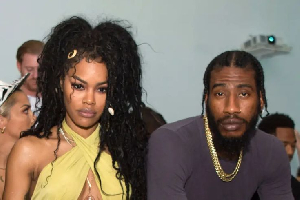 Teyana Taylor and Iman Asante Shumpert
Teyana Taylor and Iman Asante Shumpert
Basketball player Iman Asante Shumpert has reportedly reached a multimillion-dollar divorce settlement with his ex-wife, actress Teyana Taylor.
According to The Express Tribune, Shumpert has finalized a legally binding agreement requiring him to make a one-time seven-figure payment to Teyana.
Additionally, Teyana was awarded four luxury homes worth over $10 million, a $300,000 Maybach, and a $70,000 Mercedes Sprinter.
The former Brooklyn Nets player will also pay $8,000 per month in child support and share joint custody of their two daughters.
The couple, who had been married since 2016, separated in 2023. Although the exact reason for their split remains unknown, multiple reports suggest that Iman violated their prenuptial agreement.
While confirming the separation in an Instagram post, Teyana clarified that infidelity was not the cause of their divorce, adding that they remain great business partners and co-parents.
“In all fairness, Iman and I are separated and have been for a while. To be 1000% clear, ‘infidelity’ ain’t one of the reasons for our departure,” she wrote.
“We are still the best of friends, great business partners, and are one hell of a team when it comes to co-parenting our two beautiful children,” she added.
Iman Asante Shumpert has been a free agent since 2021, when he left the Brooklyn Nets.
He was selected 17th overall in the NBA Draft by the New York Knicks before being traded to the Cleveland Cavaliers, where he won an NBA championship.
Despite having a Ghanaian middle name, the player has no known ties to Ghana and has not publicly explained its origin.
Meanwhile, Teyana has reportedly moved on from the breakup and is rumored to be in a relationship with popular British actor Aaron Pierre.
EE/BB
Meanwhile, watch as football fans slam NPP over misleading betting tax comments
South Africa in ‘uncharted waters’ as budget splits coalition government
South Africa has entered uncharted waters following deep divisions in the coalition government over the national budget that has finally been tabled after a month-long delay.
This is the view of analysts after Finance Minister Enoch Godongwana’s budget drew a backlash from various quarters, including key partners in the coalition government rejecting his proposals for a second time.
The African National Congress (ANC) formed a government of national unity (GNU) with nine other parties after losing its parliamentary majority in elections last year.
And, without the support of its biggest coalition partner, the Democratic Alliance (DA), it will fail to pass the budget unless it rethinks its contentious policies or gets the backing of the biggest opposition parties.
Godongwana was forced to postpone his budget presentation last month after fierce resistance to his plan to raise value-added-tax (VAT), which would have seen the prices of goods go up at a time when South Africans are hard-hit by the cost-of-living crisis.
This delay sent shockwaves through South Africa at the time, as it was the first time this had happened since the end of white-minority rule in 1994.
Following a series of meetings between the parties in government, Godongwana returned on Wednesday to present what he called a “bold and pragmatic” budget.
In his revised budget, the minister tried to appease his GNU partners by announcing a reduced VAT increase, to be implemented over a two-year period.
Godongwana had initially proposed increasing VAT from15% to 17%, but has now suggested raising it to 16% in two stages.
The minister says that increasing taxes is necessary to tackle “persistent spending pressures in health, education, transport and security”.
“They [other parties] have to make a choice – do we close schools, hospitals or clinics? They have to make that choice. Do we fire people? That is the choice we have to make and that is not a good choice to make,” Godongwana said.
The minister added that he had opted to target VAT rather than personal and corporate taxes, as the latter two would generate less revenue while “potentially harming investment, job creation and economic growth”.
Godongwana’s revised budget has the support of his party, the ANC, but has failed to appease the DA, which said it would not “support any increase in taxes, unless those increases were temporary and the ANC agreed to a series of major reforms” that would grow the economy, reduce waste and create jobs within the next three years.
The impasse has tarnished President Cyril Ramaphosa’s much-vaunted reputation as a deal-maker, with only one of his coalition partners – the small Patriotic Alliance (PA) – supporting the budget.
The latest tussle highlights deepening divisions in the fragile coalition government, as the two biggest parties have locked horns over key issues since its formation.
This includes a controversial land law, which allows for private property to be seized by the government in certain cases, without any compensation offered to owners.
The DA is challenging the law in court, arguing that it is unconstitutional and threatens property rights in South Africa.
The two biggest opposition parties – former President Jacob Zuma’s Umkhonto weSizwe (MK) and Julius Malema’s Economic Freedom Fighters (EFF) – have also rejected the budget, saying the proposed tax hikes would hit the poor the hardest.
This leaves the ANC in a difficult situation, at it needs the support of at least one of the three other biggest parties to pass the budget.
An analyst at South Africa’s Wits University, Thokozile Madonko, says the deadlock over the budget has left South Africa in “uncharted waters”.
She tells the BBC that the role of parliament will now be “absolutely critical” as it either accepted, changed or rejected the budget.
While, in the past, the ANC could always push through its policies, this is no longer the case.
This will force it to strike a deal with other parties or risk having the budget voted down, which could result in the collapse of the coalition government.
Ms Madonko criticised Godongwana’s decision to take the “laziest option” by proposing an increase in VAT, which will affect the entire population, rather than targeting the richest section of the population by introducing a “wealth tax” on them.
Another expert, Adrian Saville, said the budget was a “folly” as the minister repeated many old promises to promote economic growth and create jobs in a country where unemployment is standing at more than 30%.
“Those are words. Give us the numbers [and] tell us what you intend to do so that when we meet again in a year’s time, we know whether you’ve been successful or if you’ve fallen short,” he tells the BBC.
Godongwana has long been seen as a steady pair of hands, commanding the respect of both the business sector and the trade union movement.
But his credibility has taken a knock following the crisis over the budget. He now faces the challenge of salvaging his reputation by steering the budget through parliament – or people would increasingly question his suitability for the post.
Love or control? Study shows how people behave when they suspect their partner is cheating
Fear of infidelity triggers jealousy, shaping how people behave with their partner. A study identified two major responses: expressing love or exerting control.
Sometimes, a relationship reaches a precarious state where one partner suspects the other of cheating. It is typically assumed that they would lash out at their partner with heated confrontation.
Mahama is running a bloated gov’t expenditure than Akufo-Addo – Dr. Gideon Boako
Dr. Gideon Boako, Deputy Ranking Member on Parliament’s Finance Committee and MP for Tano North, has accused President John Dramani Mahama’s administration of overspending despite earlier criticisms of the previous government.
Speaking on on Metro TV on Tuesday, March 11, Dr. Boako argued that the National Democratic Congress (NDC) government, particularly Finance Minister Dr. Cassiel Ato Forson, had failed to match its rhetoric on lean governance with action.
According to Dr. Boako, the NDC heavily criticised former President Akufo-Addo’s administration for maintaining a large government and allocating significant funds to the Office of the President.
“The NDC, particularly Ato Forson, made a lot of noise about the size of Akufo-Addo’s government and the budget that was allocated to the Office of the President,” he stated.
While acknowledging the reduction in the number of ministers as commendable, he expected a corresponding decrease in overall government expenditure, especially in line with the NDC’s promises to cut costs and reduce taxes.
However, Dr. Boako pointed out what he described as a contradiction in the government’s budgetary allocations.
“In 2024, Akufo-Addo spent 250 billion cedis as total appropriation. In 2025, Mahama is seeking to spend 290 billion,” he revealed.
He argued that this sharp increase in spending raises concerns about the government’s commitment to fiscal discipline and economic efficiency.
The Tano North MP further questioned how the Mahama administration intends to balance revenue and expenditure, given its pledge to cut spending while managing revenue shortfalls.
“Ato Forson said they will stop the bleeding, but that is not even the case,” he remarked.
Dr. Boako cited Appendix 4a of the budget statement, specifically on page 133, revealing that GH¢2.7 billion has been allocated for compensation at the Office of Government Machinery in 2025, compared to GH¢327 million spent under Akufo-Addo in 2024.
He also highlighted that GH¢78 million and GH¢70 million, respectively, had been allocated to the government communications and research departments at the Office of the President—figures he claims exceed the budgetary allocations of nearly five ministries under Akufo-Addo’s administration.
Dr. Boako urged Ghanaians to critically examine the government’s financial management and demand accountability to ensure that national resources are used prudently.
Beautiful Chiffon Gown Styled Elegant Ladies Can Rock To Look Stunning
Beautiful Chiffon Gown Styled Elegant Ladies Can Rock To Look Stunning
News Hub Creator29min
Chiffon gowns offer an exquisite blend of elegance and comfort, making them a top choice for sophisticated ladies who want to look stunning. The fabric’s lightweight nature allows for graceful movement, which enhances the overall appeal of the wearer. This quality makes chiffon gowns an excellent option for both casual and formal occasions, ensuring versatility in styling. The flowing design of chiffon gowns adds a touch of class, making them suitable for high-profile events where elegance is a priority.
The delicate texture of chiffon creates a refined appearance that flatters different body shapes while providing a comfortable fit. This makes it easier for women to embrace their femininity while maintaining a fashionable outlook. Designers often incorporate intricate details such as pleats, ruffles, and embroidery, which further enhance the sophistication of chiffon gowns. These elements contribute to the uniqueness of each design, allowing women to express their individual styles effortlessly.
Color selection plays a crucial role in determining the overall effect of a chiffon gown, as lighter shades exude a soft and romantic appeal, while deeper tones create a bold and striking look. This variety ensures that every woman finds a shade that complements her personality and the occasion she is attending. The adaptability of chiffon allows it to be paired with various accessories, including statement jewelry and stylish heels, to elevate the entire look. The combination of fabric flow, color, and embellishments results in a timeless piece that remains relevant in fashion trends.
Wearing a chiffon gown provides a confidence boost, as the luxurious feel of the fabric enhances self-expression. The effortless elegance associated with chiffon gowns ensures that women always leave a lasting impression. By embracing this style, ladies can achieve a sophisticated yet effortless appearance that reflects true class.
Tourism & Creative Arts Sector Missing In 2025 Budget
Dzifa Gomashie, Tourism & Creative Arts Minister
In a surprising development, Ghana’s tourism and creative arts sector was omitted from the 2025 budget presented before parliament on March 11, 2025. The 69-page document read in a one-hour, forty-minute presentation by Minister of Finance Dr. Cassiel Ato Forson, made no mention of any allocation for these key sectors.
This omission comes despite earlier promises. During the 2024 campaign season, President Mahama pledged in his manifesto to empower filmmakers, musicians, and other creative arts stakeholders by providing the necessary capital to innovate and thrive.
Additionally, at the 2025 State of the Nation address on February 27, the president unveiled plans for “The Black Star Experience,” a flagship initiative intended to position Ghana at the forefront of tourism in Africa and among the diaspora. Yet, none of these proposals received funding in the budget.
In contrast, previous fiscal years saw significant investments in the sector. In the 2023 fiscal year, Ghana’s Ministry of Tourism, Arts, and Culture was allocated GH¢115,694,000, and in 2024, the ministry received GH¢260,948,961. The absence of any allocation in 2025 marks a notable departure from past budgets, raising concerns among industry stakeholders about the future support for tourism and creative arts in the country.
Meanwhile, the Finance Minister has explained that the sector minister would be responsible for presenting detailed reports and plans for the sector to Parliament in the coming weeks.
Mahama reminds appointees to comply with Assets Declaration Law
By Iddi Yire
Accra, March 13, GNA – President John Dramani Mahama has reminded his appointees – Ministers, Deputy Ministers, Chief Executive Officers (CEOs) and Deputy CEOs, of the need for them to comply with the Assets Declaration Law.
The Public Office Holders (Declaration of Assets and Disqualification) Act, 1998 (Act 550) mandates public officials to declare their assets and liabilities upon their assumption of office.
The law aims to prevent corruption, detect illicit enrichment, and address conflicts of interest by requiring public officials to disclose their assets and liabilities.
The President made the appeal on Wednesday, when he swore-in 13 Deputy Ministers and one Minister of State at the Presidency in Accra.
President Mahama, who charged the inductees to formally declare their assets as quickly as possible, also reiterated that the amended law on assets declaration covered both CEOs and Deputies CEOs, who had been appointed in Government’s departments and agencies.
“So those who are rushing for position, you are covered by the assets declaration rule, and so they should declare their assets as quickly as possible,” the President said.
“I have asked the Chief of Staff to write to all such persons to declare their assets promptly with the Auditor-General’s Office.”
President Mahama said Madam Lydia Lamisi Akanvariba, the Minister of State in-charge of Public Sector Reform, would work under the Presidential Special Advisor on Governmental Affairs to achieve speedy and optimal reform in Ghana’s Public Services.
He said each of the inductees, who had been appointed as Deputy Ministers, much was expected from them and while their role as Deputy Ministers required professional subordination in supporting their substantive ministers, he would hold them to the same standards of accountability, diligence, hard work, and sacrifice for Ghana’s collective success.
“In view of this, the same cautions I give to Ministers against arrogance, against opulence, and neglect of duty apply to you as well,” President Mahama said.
“You must also promptly fulfil your asset declaration requirements and submit same to the Auditor General.”
He advised them to always ensure that any travel outside Ghana passed the essential travel test and received approval from the Office of the Chief of Staff.
“There are two clocks we hear. For those of us elected by the good people of Ghana to lead them, the clock we hear is the ticking of the first clock of the four-year time frame given to us by the people of Ghana,” the President said.
He added that the officers they would be working with in the public services had security of tenure, and that they hear a more relaxed clock, and that clock ticked towards their retirement age of 60 years; saying “they may therefore not be in as much a hurry as you”.
“You must therefore work to encourage and incentivise them to work at the pace of your four-year mandate that the people of Ghana have given to you. If you are able to do this, to let them see the urgency and the hurry in which this government is, we shall achieve success.”
Madam Lydia Lamisi Akanvariba, the Minister of State in-charge of Public Sector Reforms, on behalf of the inductees, thanked the President for the honour done them.
She noted that they would put in their best to make sure that the President achieves his agenda of resetting the nation.
GNA
GRB
Ghanaians prioritise savings as economic challenges persist
Amid economic uncertainties and rising financial stress, Ghanaians are shifting their focus towards savings and long-term financial security.
The 2024 Old Mutual Financial Services Monitor has revealed a significant decline in the number of people dipping into their savings to cover shortfalls, signaling a growing emphasis on financial discipline.
According to the report, only 18% of working Ghanaians used their savings to make ends meet in 2024, a sharp decline from 61% in 2023. This change suggests that more individuals are prioritizing savings preservation and seeking alternative ways to manage financial pressures.
The report also highlights the continued popularity of informal savings mechanisms. Around 37% of working Ghanaians belong to a Susu, while 28% keep unbanked cash as a readily accessible safety net. Additionally, mobile money remains a crucial financial tool, with 46% of Ghanaians using mobile wallets for savings purposes.
Despite the positive shift in savings behavior, the report exposes a concerning trend—low participation in retirement savings. Only 33% of Ghanaians are actively saving for retirement, with many prioritizing short-term needs such as business investments, children’s education, and emergency funds.
With 25% of household income now allocated to savings, financial analysts believe this shift could mark the beginning of a more financially stable future for Ghanaians.
Experts are encouraging individuals to explore more structured investment options, including pension schemes and fixed deposits, to maximize their savings potential.
As the economic landscape remains uncertain, one thing is clear—Ghanaians are becoming more intentional about their financial well-being, taking small but meaningful steps toward securing their future.
‘Mohbad’s Death Has Been Turned Into Business, His Father Is Not Keeping Him In Morgue Out Of Grief’ – Omowunmi
The wife of the late Nigerian singer, Mohbad, Omowunmi Aloba, has expressed frustration that her husband’s corpse is still in the morgue 18 months after his tragic demise.
Naija News recalls that Mohbad died on September 12, 2023, and was buried the following day.
Jean Mensa proposes “simplified” e-voting system to reduce rejected ballots
Jean Mensa, Chairperson of the Electoral Commission (EC), has proposed the adoption of a “simplified” e-voting system as a solution to the persistent issue of invalid or rejected ballots in African elections.
She explained that using a direct recording device where voters select their preferred candidate or party logo on a screen would eliminate the traditional thumb-printing method, which often leads to errors.
Her proposal follows concerns over the excessive waste of ballot papers in Ghana’s general elections.
According to an audit by the Electoral Commission, between 1992 and 2020, one to three per cent of votes in Ghana’s national elections were rejected. In the 2020 General Election, 2.33 % of ballots were invalid, a figure that dropped slightly to 2.08 % in the 2024 polls.
An in-depth analysis by the EC identified high voter illiteracy, voter dissatisfaction with candidates, and excessive caution by electoral officers as key factors contributing to rejected ballots.
Speaking at the Ninth Annual Continental Forum for Electoral Management Bodies in Accra on Wednesday, March 12, Jean Mensa expressed concern over the increasing rate of rejected ballots, warning that such trends could influence election outcomes. She urged electoral management bodies to analyse the complex factors leading to invalid votes and develop effective solutions.
“In the ever-evolving era of technology, it is about time that we as a continent begin to consider more effective and efficient mechanisms for voters to cast their ballots,” she stated.
The two-day Forum, hosted by Ghana’s Electoral Commission in collaboration with the African Union and the Association of African Election Authorities, has brought together over 40 representatives from electoral management bodies across Africa. Themed “All votes count: addressing the problem of invalid or rejected ballots in Africa.” the event aims to enhance the integrity of electoral processes and strengthen public trust in voting systems.
Jean Mensa also disclosed that discussions on adopting e-voting technology in Ghana have already begun. However, she assured stakeholders that the transition “will not be rushed.”
She further noted that the Forum would explore global best practices and innovative electoral systems to minimize rejected ballots. Additionally, she emphasized the need for public sensitization and comprehensive training for electoral officers to improve voting accuracy.
Former Chief Justice and Member of the Council of State, Madam Sophia Akuffo, echoed these concerns, stating that the rising number of rejected ballots poses a threat to Africa’s democracy.
“The democratic process of elections on our continent is at risk of being undermined by the increasing number of invalid or rejected ballots,” she cautioned.
She urged governments, electoral bodies, and stakeholders to renew efforts to safeguard public confidence in the electoral process.
Similarly, Mr. Fabio Bargiacchi, Founder and Executive Director of the European Centre for Electoral Support, emphasized the importance of collaboration among African election management bodies. He called for greater knowledge-sharing and experience exchange to strengthen democratic institutions and public trust in electoral systems.
Source: GNA
Ghana Likely To Miss IMF Structural Benchmarks – Ato Forson
Dr. Cassiel Ato Forson
The Minister of Finance, Dr. Cassiel Ato Forson, has stated that the country is likely to miss out on the International Monetary Fund (IMF) structural benchmarks due December 2024.
He further added that this would be assessed by the staff in the upcoming 4th review of the programme in April 2025.
The Minister who revealed this when he presented the 2025 budget statement and economic policy in Parliament said the structural benchmarks include performance indicators such as primary balance, inflation, and social protection spending.
He said, “Inflation worsened in 2024 from 23.2% in 2023 to 23.8% in 2024. The 2024 end-period inflation also exceeded the budget target of 15% by 8.8 percentage points and the IMF central target of 18% by 5.8 percentage points. This has triggered a discussion with the IMF under the Monetary Policy Consultation Clause” he stated.
The Minister stated that the primary balance on a commitment basis also worsened from a deficit of 0.2% of GDP in 2023 to a deficit of 3.9% in 2024 while the primary balance on a commitment basis target for 2024 recorded a surplus of 0.5% of GDP.
“The previous government recorded a deficit of 3.9% of GDP. This represents a slippage of a whopping 4.4 percentage points,” he noted.
According to the Minister, due to the bilateral creditor debt restructuring undertaken by the previous administration, 55 projects have been suspended leaving an amount of US$3 billion in undisbursed loans and about US$300 million in outstanding interim payment certificates (IPCs).
Among some of the projects he mentioned are Effia Nkwanta Regional Hospital, Kejetia Market Phase Bolgatanga-Bawku Pulimakom road project, and Tema-Aflao road project.
He further indicated that delayed payments and demobilization from the site could result in cost overruns of about US$1.1 billion as the IMF-supported programme imposes an annual disbursement ceiling of US$250 million for official bilateral loans.
“This constraint means that it will take a minimum of 12 years from the recommencement of disbursements to complete these 55 stalled projects. We will be engaging in the coming days to resolve this,” he added.
By Ebenezer K. Amponsah
International partnership supporting a new age of rice irrigation in Ghana

Lancaster environmental scientists are helping explore new water-saving irrigation techniques to help rice farmers’ crops in Ghana be more resilient to changing climates.
As part of a project spearheaded by Lancaster University crop scientists, researchers in the West African country will trial Alternate Wetting and Drying (AWD) – a new technique that could save around 15-25 per cent of water compared to traditional rice growing methods.
The Alternate Wetting and Drying (AWD) method alternately floods rice paddies and allows them to dry, rather than being kept continuously flooded.
The project, a partnership between Lancaster University, the Ghanian Council for Scientific and Industrial Research – Crops Research Institute (CSIR-CRI) and Ghanaian company, Newage Agric Solutions Ltd, benefits from £221,000 funding provided through an African Agriculture Knowledge Transfer Partnership (AAKTP), which is funded by Innovate UK, part of UK Research and Innovation (UKRI). The team works closely alongside KTP Adviser Geraint Jones from innovate UK Business Connect ensuring all partners are supported to access skills training and new networks, and that the project maximises its impact.
The project allows CSIR – CRI to employ Mr Vincent Opoku Agyemang with a local commercial partner – Newage Agric Solutions Ltd, a Ghanaian agriculture business. Mr Agyemang will evaluate the responses of different Ghanaian rice cultivars to AWD irrigation in the country’s Weta region, including their flagship, locally produced, Evivi long grain rice.
Vincent Opoku Agyemang, KTP Associate said: “It is a privilege to be part of this collaborative effort between Lancaster University, CRI, and Newage Agric Solutions Ltd. Together, we aim to transfer a smart agricultural water-saving technology to enhance the yields and livelihoods of rice farmers in Weta. This partnership will play a crucial role in achieving zero hunger and improving livelihoods, aligning with the UN’s Sustainable Development Goals to end poverty and hunger.”
Rice is a water-intensive crop, especially during its early growth stages, requiring 3,000 litres of water to produce a kilogram of rice, more than three times as much as an equivalent amount of wheat. While the monsoon period in tropical climates provides water in abundance, the burgeoning demand for rice means it often needs to be ‘double-cropped’, where farmers plant and harvest one rice crop in the wet season, then plant and harvest a second in the dry season.
Changing monsoon patterns mean farmers need to increase their climate resilience if the expected rains do not happen, making them increasingly dependent on scarce irrigation resources.
This latest project builds and expands on previous successful trials in AWD. These earlier trials took place under the Global Challenges Research Fund (GCRF) project, RECIRCULATE – a major international research and knowledge-exchange collaborative partnership between Lancaster University researchers and a growing pan-African network of research-led institutions, which has led to the formation of the Africa Research and Innovation Partnership (ARIP) network.
Results from the previous trials, which involved researchers from Lancaster University and the CSIR-CRI and hosted by Newage Agric Solutions Ltd, indicated a 30 per cent saving in water use without harming rice yields.
Lancaster University environmental scientists, Professor Ian Dodd and Professor Kirk Semple are collaborating with scientists from CRI and the team at Newage to coordinate the new project and provide scientific expertise on plants and soil.
Ian Dodd, Professor of Sustainable Agriculture at Lancaster University, said: “At an ARIP meeting in Accra last year, it was clear the commercial sector was interested in trialling AWD on a much larger scale than our previous small plot experiments. Those discussions formed the basis of our successful bid for Innovate UK funding with Newage Agric Solutions Ltd, which advances both the sustainability of agricultural water use and our research collaboration. Having previously been involved in delivering a KTP within the UK, I am convinced this project will offer a fantastic training opportunity for Vincent and provide considerable value to Newage Agric Solutions Ltd.”
Climate change has limited irrigation supplies in the Weta region in recent years, so reducing water use while maintaining yield is critical to enable smallholder farmers across the area to produce more rice for their communities.
Dr Patricia Amankwaa-Yeboah of CRI said: “It is great to work with Newage Agric Solutions Ltd to translate research output to smallholder farmers in Weta. We look forward to sharing our expertise on water and nutrient innovations in rice production to contribute to Vincent’s development as a KTP Associate.”
Martin Nartey, General Manager at Newage Agric Solutions Ltd, said: “Our collaboration with Lancaster University and the CRI is a testament to the power of unity in advancing agricultural science and technology by merging academic excellence with cutting-edge research and industry expertise, ensuring food security for generations to come.”
Eugene Zori, also of Newage Agric Solutions Ltd and involved in the earlier Innovation Award, said: “We are transforming research into reality to drive sustainable growth and resilience in the agricultural sector.”
2025 marks 50 years of the Innovate UK Knowledge Transfer Partnership (KTP) programme. KTPs bring together universities, research institutes and businesses to work together on a development project that is strategically important to the future of the business. African Agriculture Knowledge Transfer Partnerships (AAKTPs) are a partnership between a UK Knowledge Base, and an African Knowledge Base and Business Partner in one of the following countries: Republic of Ghana, Federal Republic of Nigeria, Republic of Kenya or Republic of South Africa.
Back to News
I Stopped Wearing Jeans – Kevin Hart
Kevin Hart
American comedian Kevin Hart has revealed that ageing has influenced his fashion choices. During a recent appearance on the Jennifer Hudson Show, the 45-year-old entertainer explained that he no longer wears jeans because he finds them uncomfortable. Instead, he now opts for simpler, more comfortable clothing, a trend he expects to continue into his 50s.
He said, “I don’t wear jeans anymore because I’m getting older. It’s all pants, all slacks. I mean, I’m over 40, I feel like the good pants is necessary.
“Jeans are not the same. Jeans hurt, and they are not comfortable. I need a comfortable slack. I need something that I can move in, something that’s soft.
“I don’t like how jeans feel on my knees. They hurt my knees. They hurt my waist like when you sit down, I don’t like how jeans dig in my waist.
“My dress sense changed when I clocked 40. I’m 45 now. I’m about 46. So it changes. At 50, I’m going on all sweatpants.”
Zenith Bank Commissions First-Ever Banking Clinic for Tertiary Students
The Zenith Bank- KsTU Banking Clinic INSERT: Officials cutting the tape to open the facility
Zenith Bank (Ghana) Ltd has taken a groundbreaking step in bridging the gap between theoretical and practical learning for tertiary students studying Banking and Finance by establishing the first-ever Banking Clinic at the Kumasi Technical University (KsTU) in the Ashanti Region.
This novel project serves as a Banking Simulation and Training Centre where students will be given practical skills in the various aspects of banking operations.
The state-of-the-art simulated banking hall has been designed to replicate a standard Zenith Bank branch, complete with all essential departments and equipment found in a typical banking hall – customer service and Funds Transfer/Head of Operations desks, cash and teller points, an office for the branch manager and a relationship manager, money counting machines, computers, an electronic safe to represent a vault, a flat screen TV for projection of treasury rates and adverts on the Bank’ s products and services, mock displays of all regulatory requirements such as the Ghana Deposit Protection Corporation membership certificate, fire certificate, public notices on tax evasion and other money laundering practices, among others .
The facility is also equipped with two air conditioning units, fans and many more to make learning conducive.
At a ceremony to hand over the newly established simulated banking hall to the administration of KsTU, George Imbrah, Divisional Head, representing the Managing Director/Chief Executive Officer of Zenith Bank Ghana, Henry Onwuzurigbo, explained that the initiative aims at addressing the skills gap students often encounter when transitioning from the classroom to internships or to the workplace.
“This initiative significantly reduces the steepness of the transition into the Banking industry. Moving directly from the university into the banking field can be challenging as classroom learning differs from real-word practice. As a Bank, our goal is to bridge that gap,” Mr. Imbrah said.
According to him, this initiative will have a lasting impact on the next generation of banking professionals as staff of the Bank will take turns to train and interact with the students.
“This simulated banking hall is expected to help students gain practical experience through simulation, exposure to digital technology, and insights into current trends in the banking industry and by the time these students graduate, they would have gained a solid understanding of banking operations,” Mr. Imbrah added.
Mr. Imbrah further assured leadership of KsTU of Zenith Bank’s commitment to nurturing young minds and the Bank’s continued support to the institution.
The Dean of Business School, KsTU, Professor Abdul-Aziz Iddrisu, who initiated the steps towards engaging Zenith Bank Ghana to establish the Banking Clinic, highlighted the university’s commitment to providing practical training for its students.
“Many of us come from the banking sector, and we brought in colleagues from the industry to train our students using real-world models. Eventually, we realized the need for a dedicated center that would serve as a one-stop shop for everything students need to know about banking. This led us to approach Zenith Bank Ghana through our Vice Chancellor and today, we are proud to be opening this facility,” Professor. Iddrisu said.
He further revealed that the Banking Clinic would not only benefit KsTU students but would also be used to train staff from low-tier financial institutions.
The Vice Chancellor of KsTU, Professor Gabriel Dwomoh, expressed his gratitude to Zenith Bank for pioneering the project, which prioritizes the interests of students.
“As a technical university, we are committed to a Competency-Based Training (CBT) curriculum. To deliver this effectively, we need the full complement of practical facilities to augment theoretical knowledge. This includes laboratories, workshops, and other practical resources such as the Zenith Bank-KsTU Banking Clinic,” Professor Dwomoh stated.
He emphasized that the uniqueness of technical universities lies not only in Science, Technology, Engineering and Mathematics (STEM) – related programs, but also in ensuring that business-related programs have the necessary practical components.
“For the humanities and business disciplines, there is often a gap between theory and practice. This Banking Clinic is a significant step towards bridging that gap.
We are therefore grateful to Zenith Bank for bringing real banking operations to the doorstep of our students. They can now practice banking operations here, which will prepare them to meet industry standards upon graduation,” the Vice-Chancellor said.
Professor Dwomoh also noted that the simulated banking Clinic demonstrates Zenith Bank’s commitment to impact on the environment within which it operates.
“This initiative shows that Zenith Bank is dedicated to producing graduates with the requisite competence to excel in the industry. This will benefit the industry as a whole, and we hope other institutions will take an interest in the training that takes place here.”
Prof. Dwomoh described the Zenith Bank – KsTU Banking Clinic as a testament to the power of partnerships between academia and industry, promising a brighter future for KsTU students and the broader financial ecosystem in Ghana.
Joseph Siaw Always Finds A Way To Get Contracts, Whether The Npp Or Ndc Is In Power
Investigative journalist Manasseh Azure Awuni has asserted that Joseph Siaw Agyepong, the CEO of Zoomlion, always finds a way to get contracts, whether the NDC or NPP is in power. He revealed that he just saw a picture of him wearing a shirt that has the inscription ”24HR Sanitation Services”.
Manasseh Azure Awuni made this comment in a post shared on his Facebook page on 13th March, 2025. He wrote:
“In 2008, the NDC campaigned with the “Better Ghana Agenda” slogan and won the election. When I found a company involved in the youth employment corruption scandal I investigated, I assumed it b THEPelonged to an NDC big shot.
My search at the Registrar General’s Department revealed that the company, Better Ghana Management Services Limited, belonged to the Jospong Group, headed by Joseph Siaw Agyepong.”
Manasseh Azure narrated that the NPP under Kufuor had propped up Jospong/Zoomlion with shady and unconscionable contracts, and when the NDC won the 2008 election, Jospong worked its way into the hearts of the NDC administration.
He added that in 2016, President Mahama said at the climax of Zoomlion’s 10th anniversary that the Jospong CEO, Joseph Siaw Agyepong, was often the first person to come to him after he had delivered the State of the Nation’s Address. The CEO, President Mahama said, would list initiatives he (the president) mentioned in the SONA and tell him how he (Joseph Siaw Agyepong) intended to implement them.
“At the programme, John Mahama said, “As long as I remain president, I will do everything to support your business.”
Mahama lost the 2016 presidential election a week after that, and the CEO of Jospong, Joseph Siaw Agyapong, attended the NPP’s victory thanksgiving service.
Under the “incorruptible” Akufo-Addo, Jospong and Zoomlion profited from shady deals, such as the COVID-19 and youth employment contracts.
Last week, someone sent me this photo of the Jospong CEO, Joseph Siaw Agyapong, wearing a shirt that has the inscription “24HR Sanitation Services,” with a Zoomlion logo and the Coat of Arms.
The 24-hour economy has just begun. Good luck to President Mahama and Jospong.”
Source: https://www.facebook.com/share/p/1A99kANuzN/
Manasseh Azure Awuni – Facebook page





